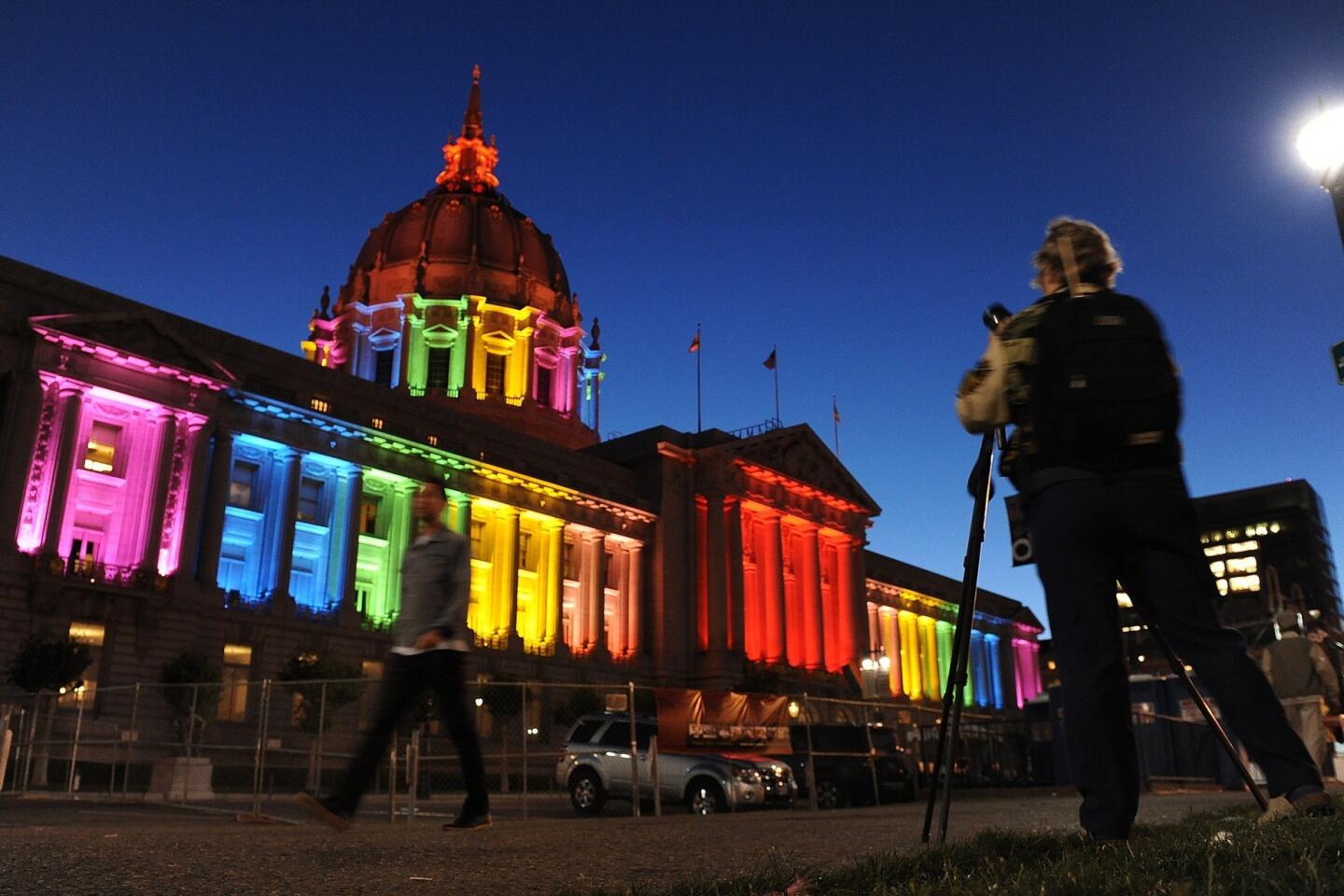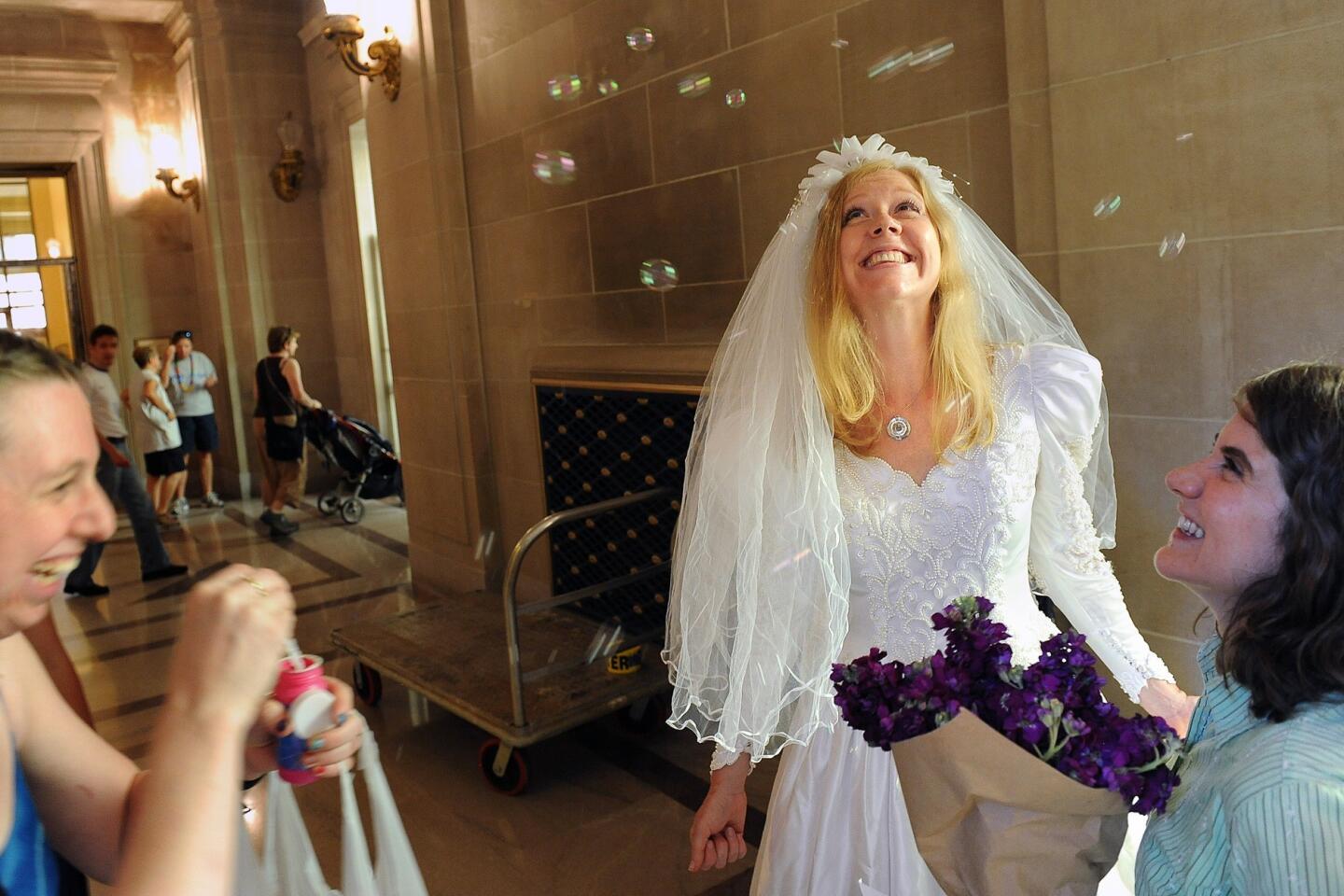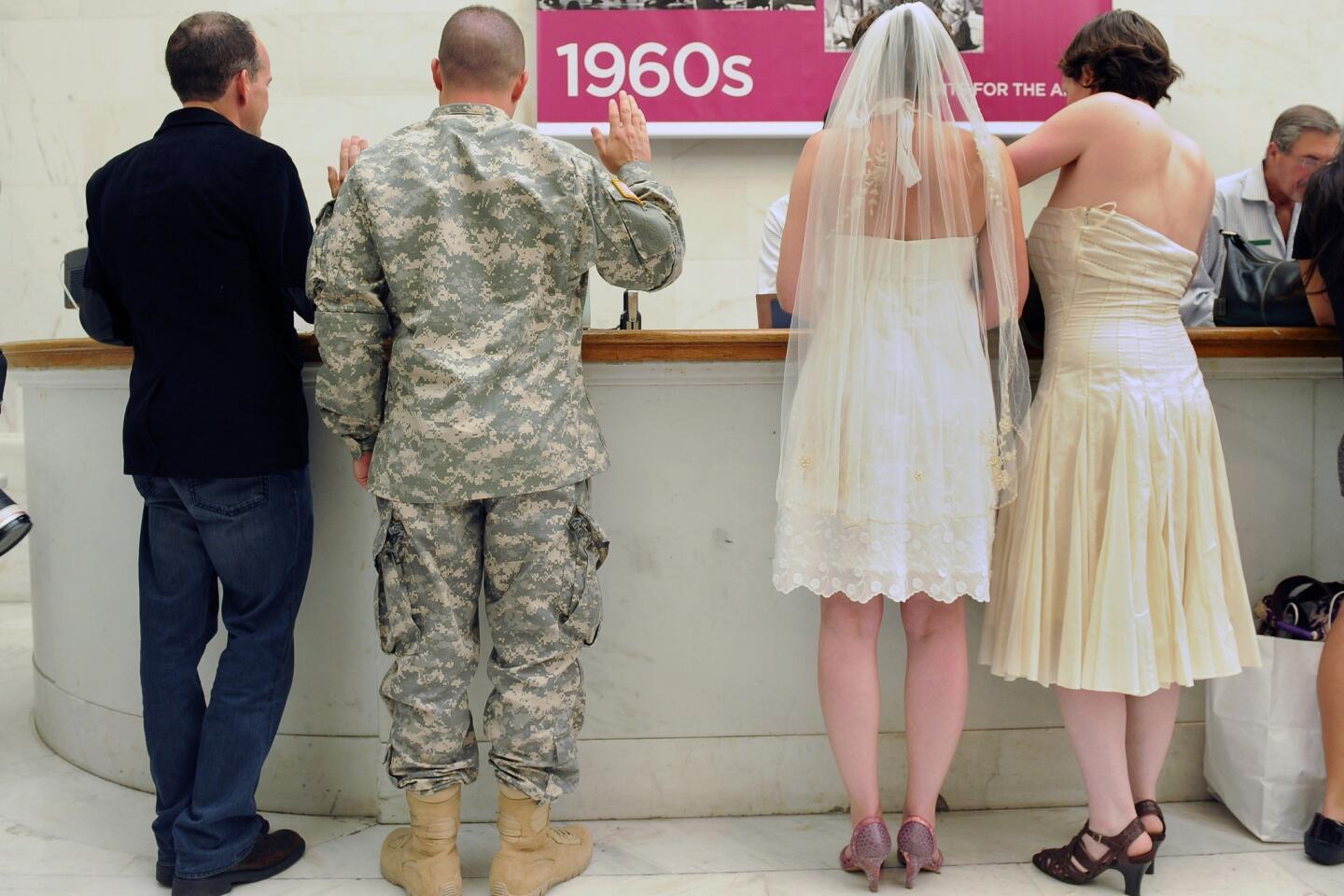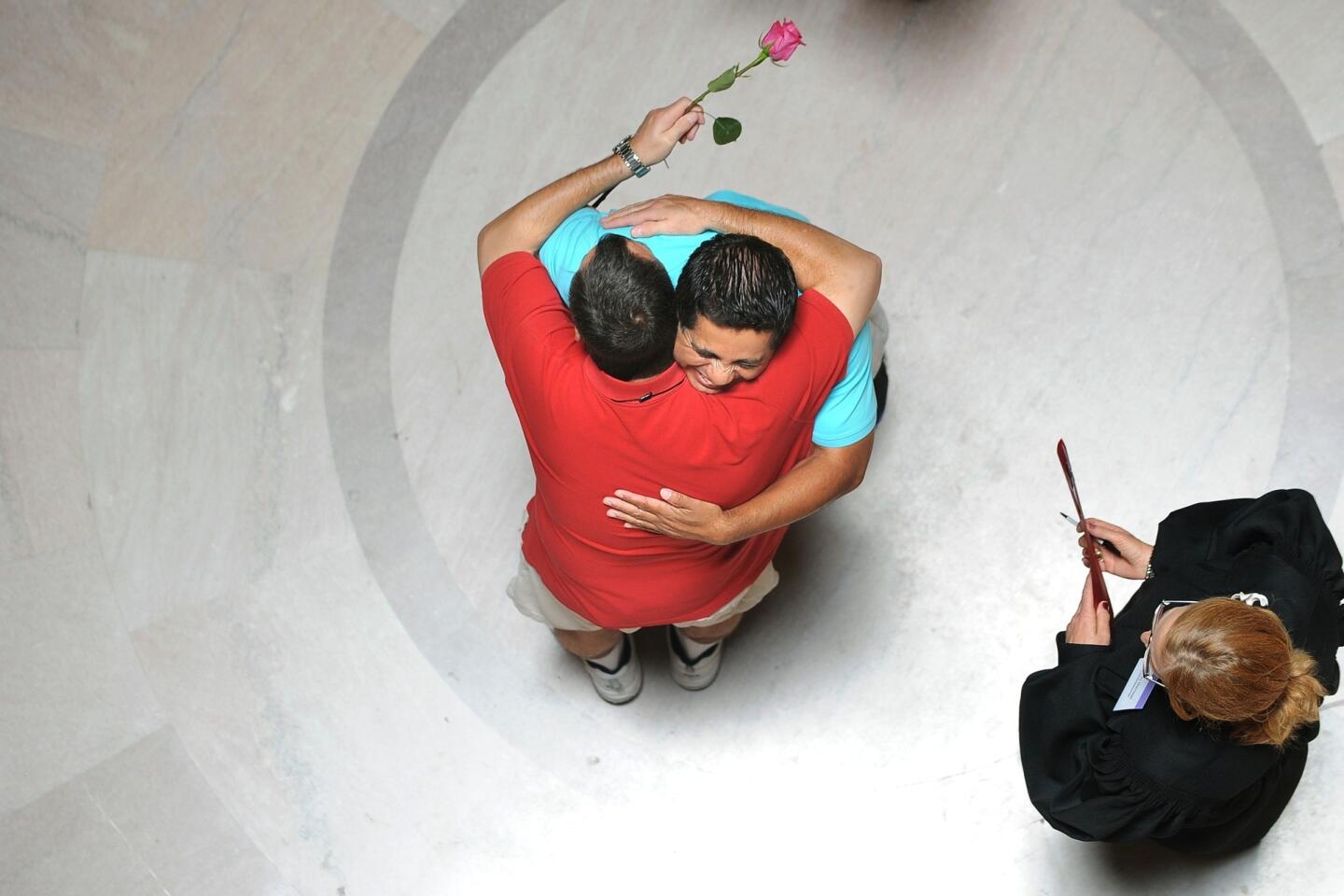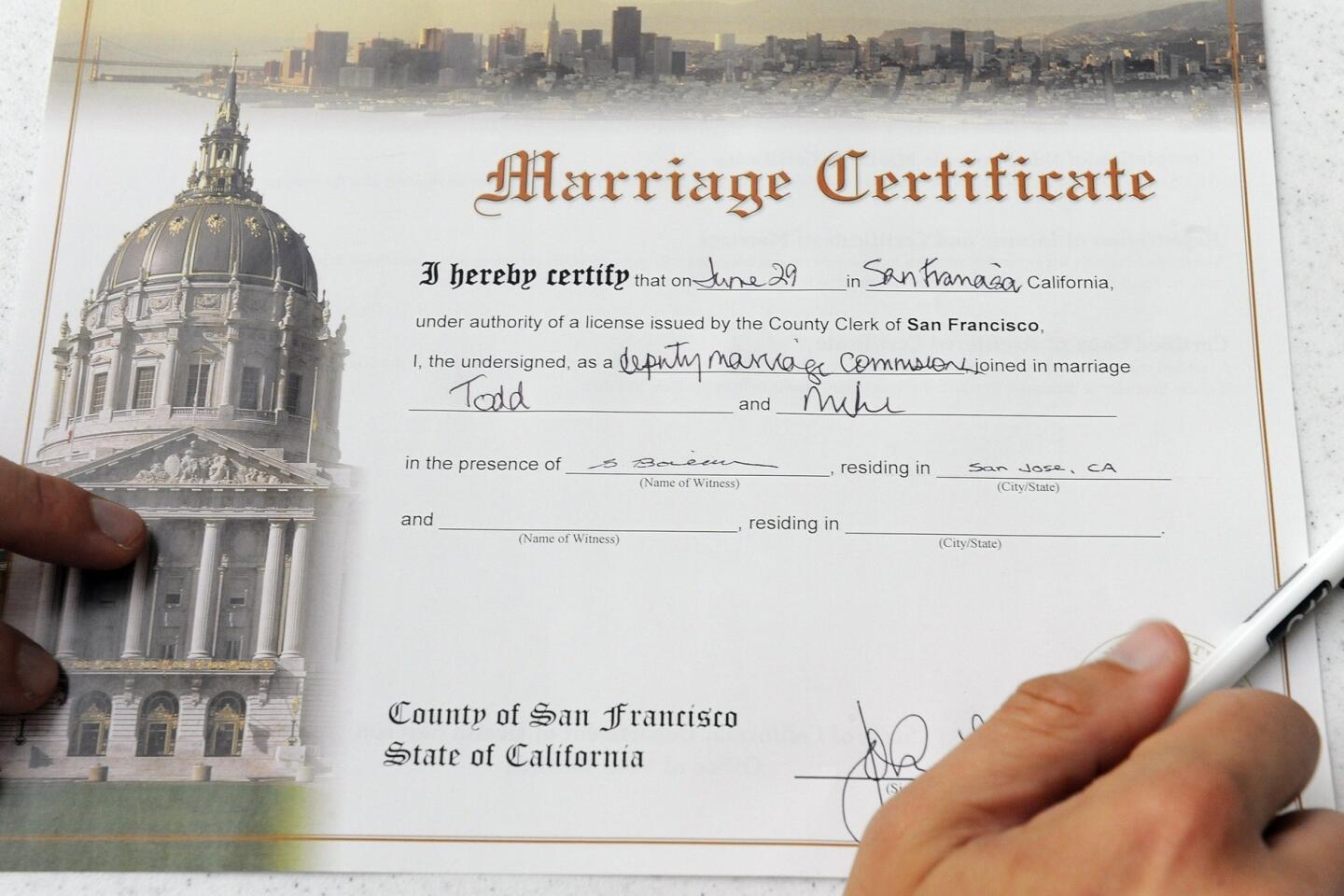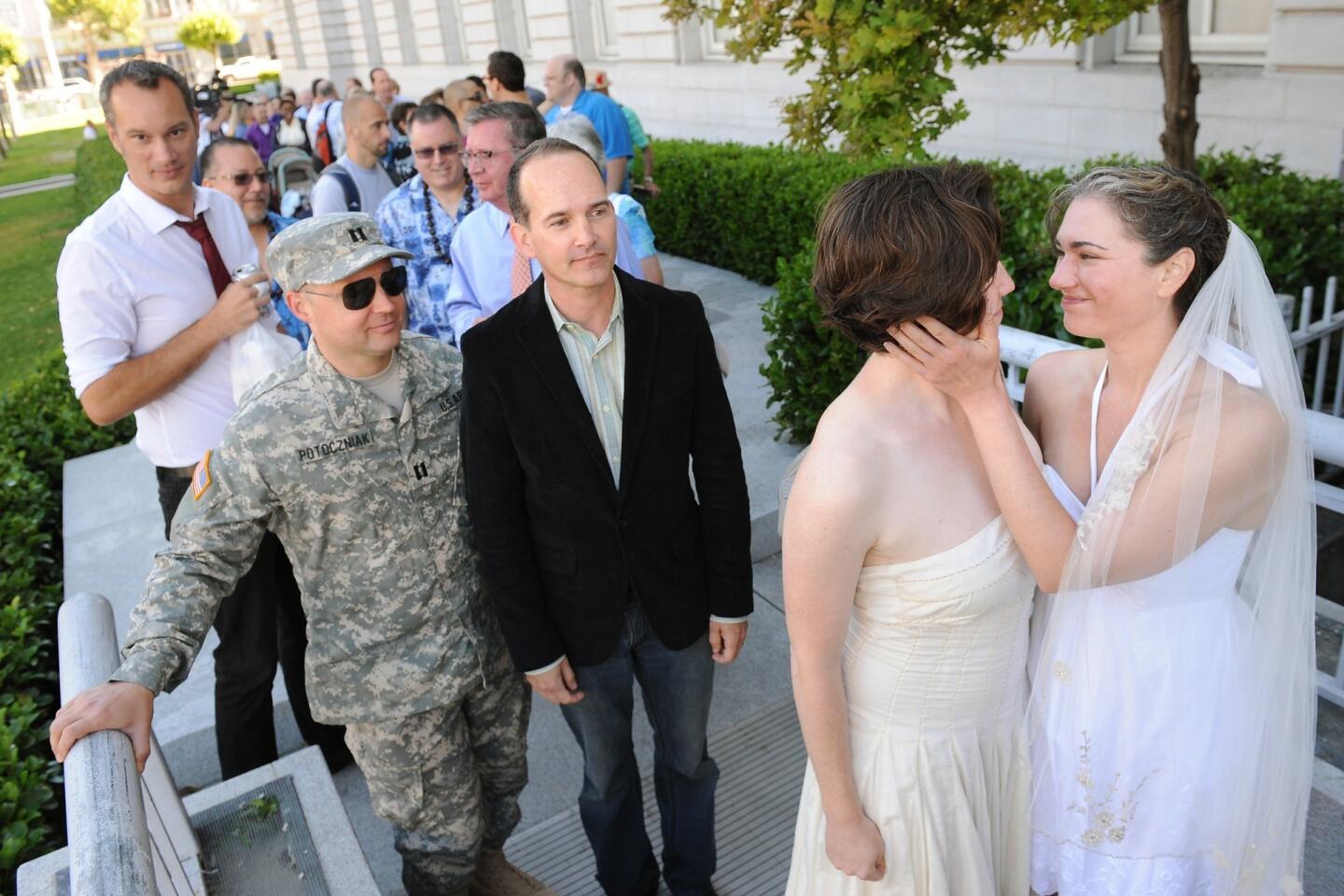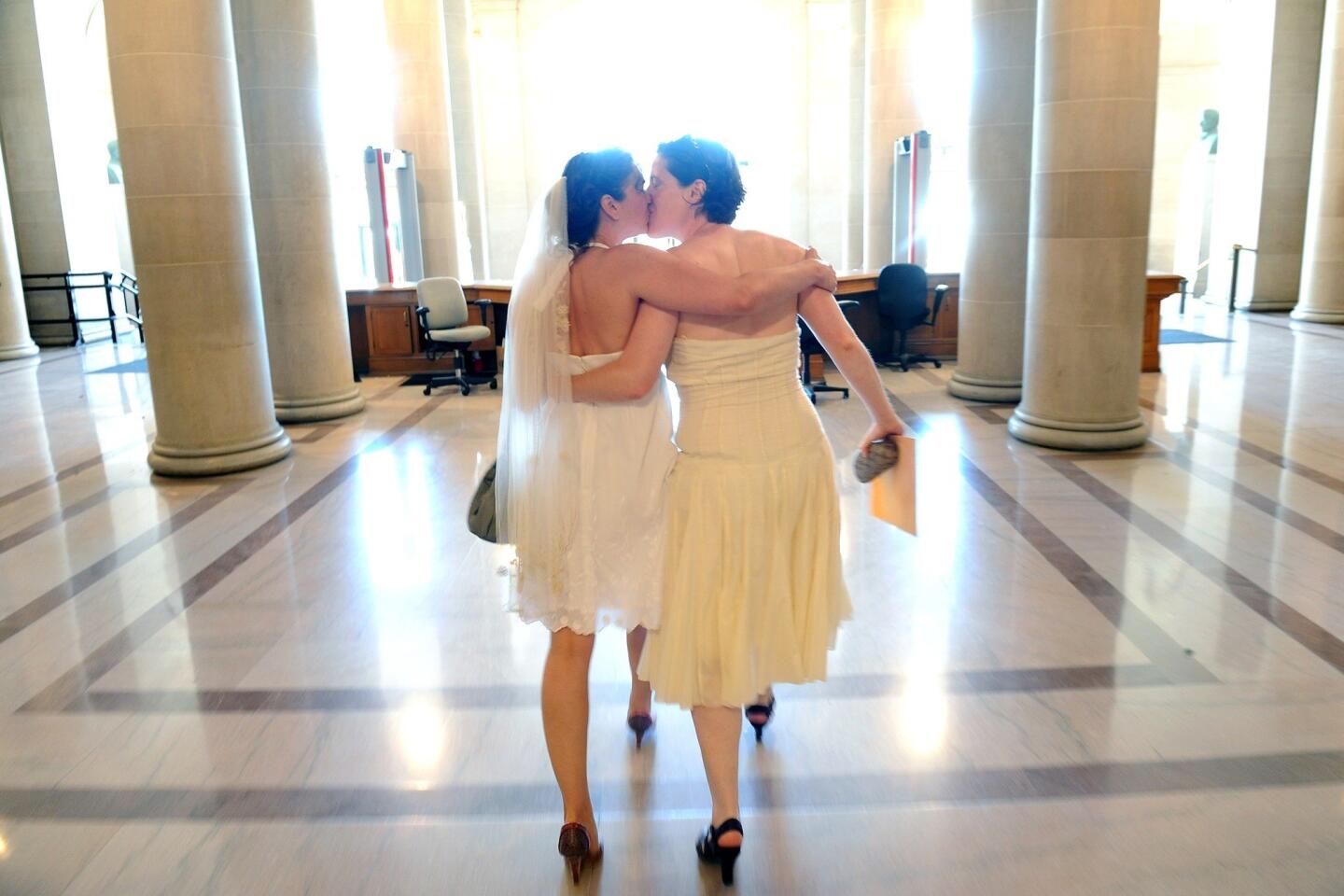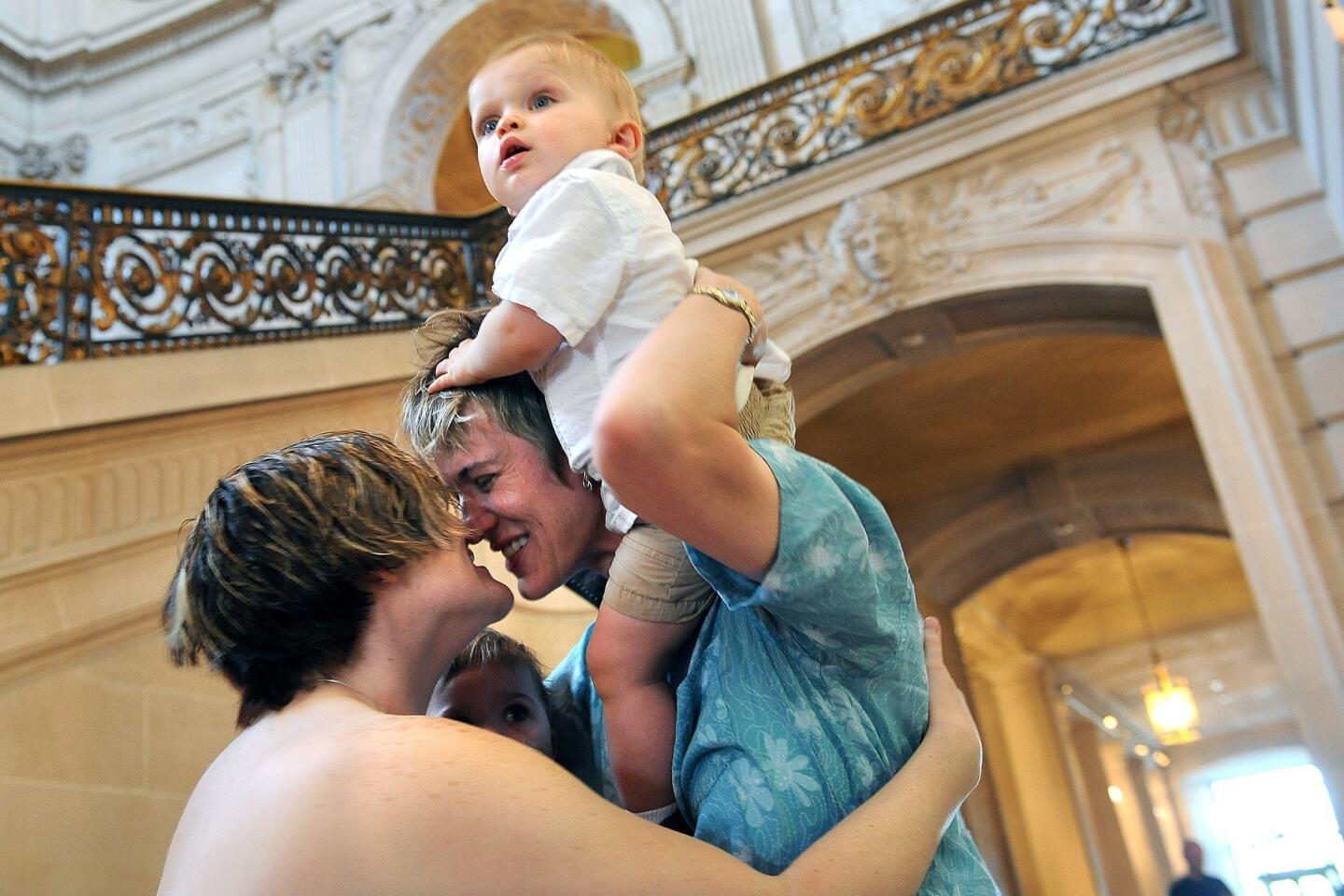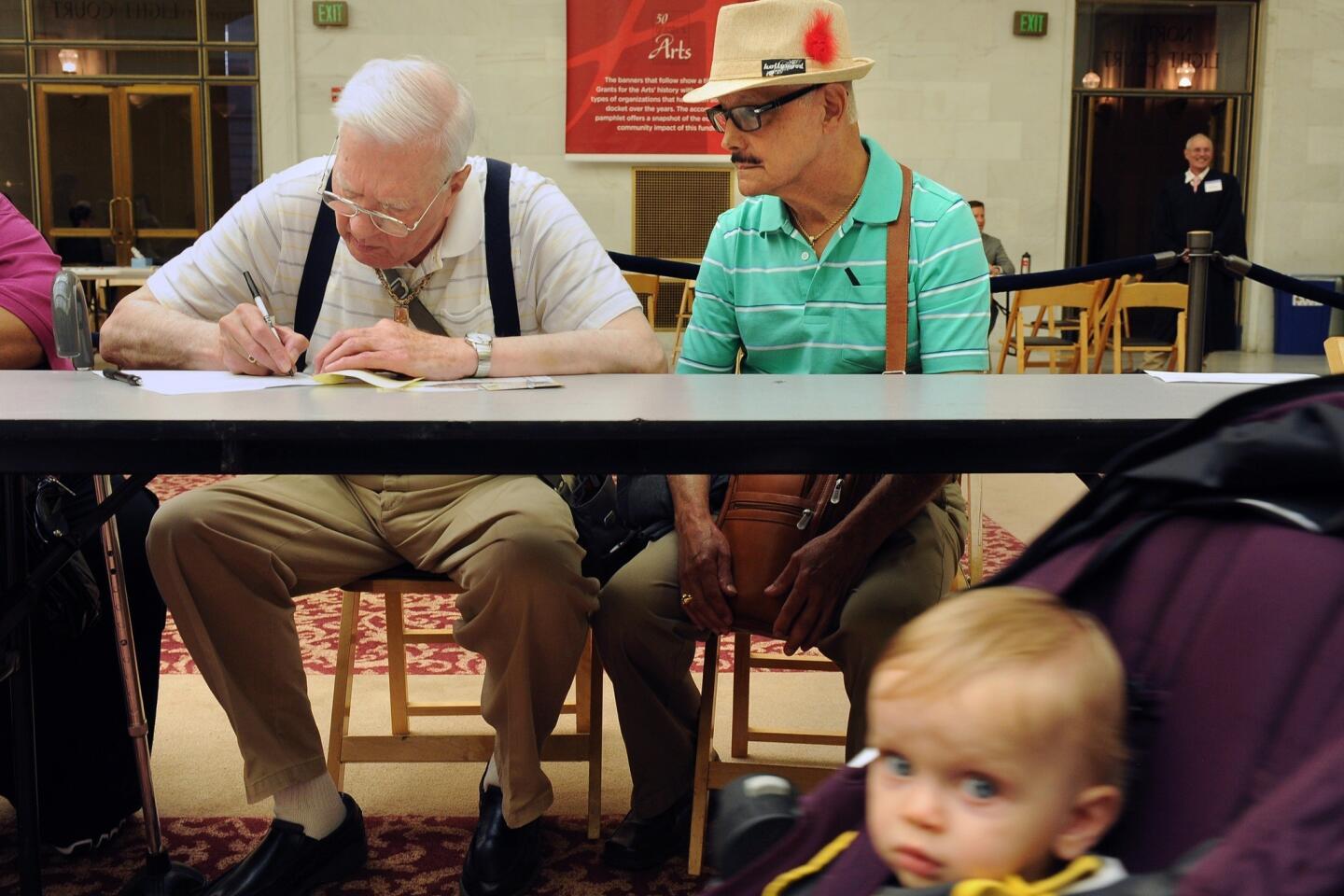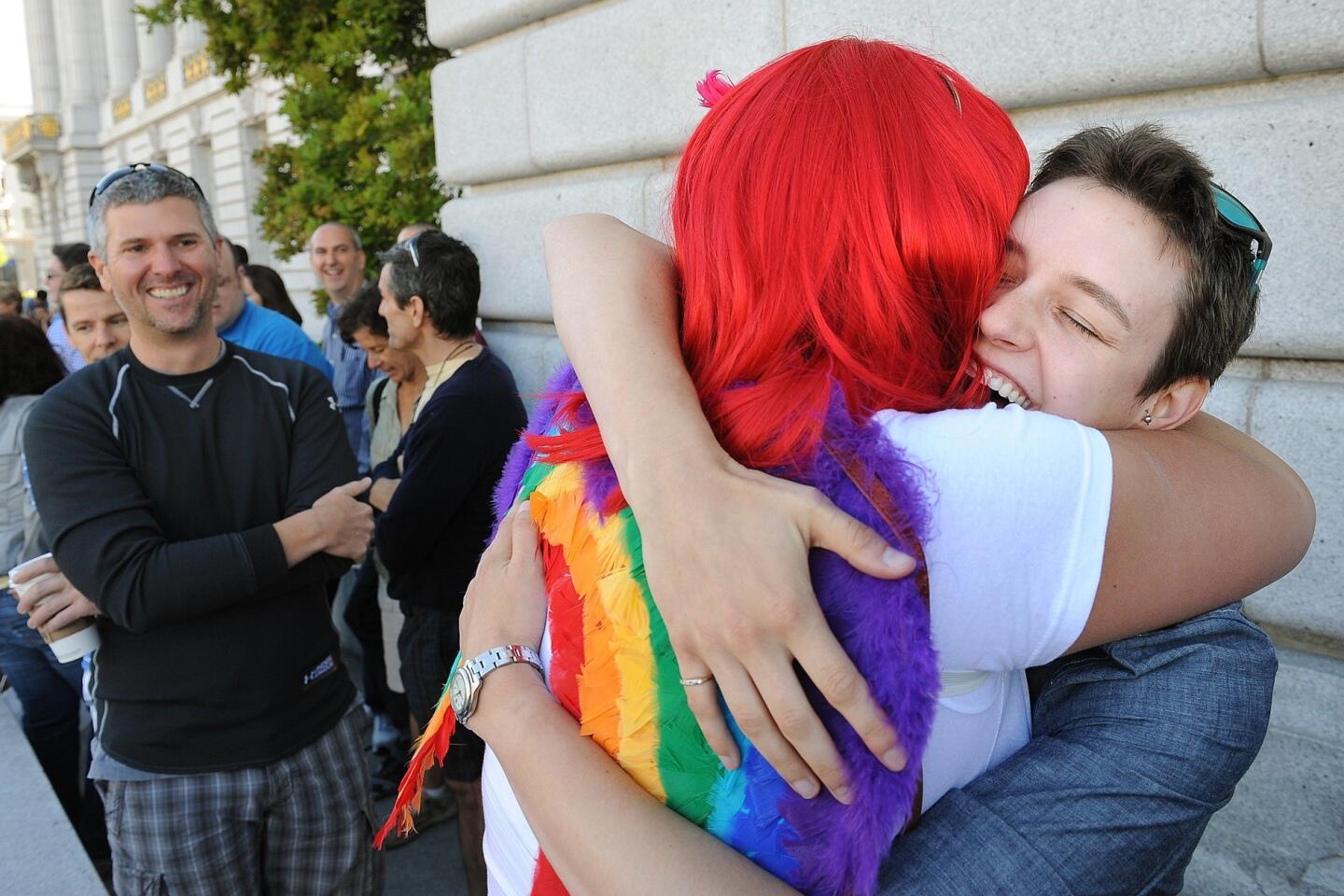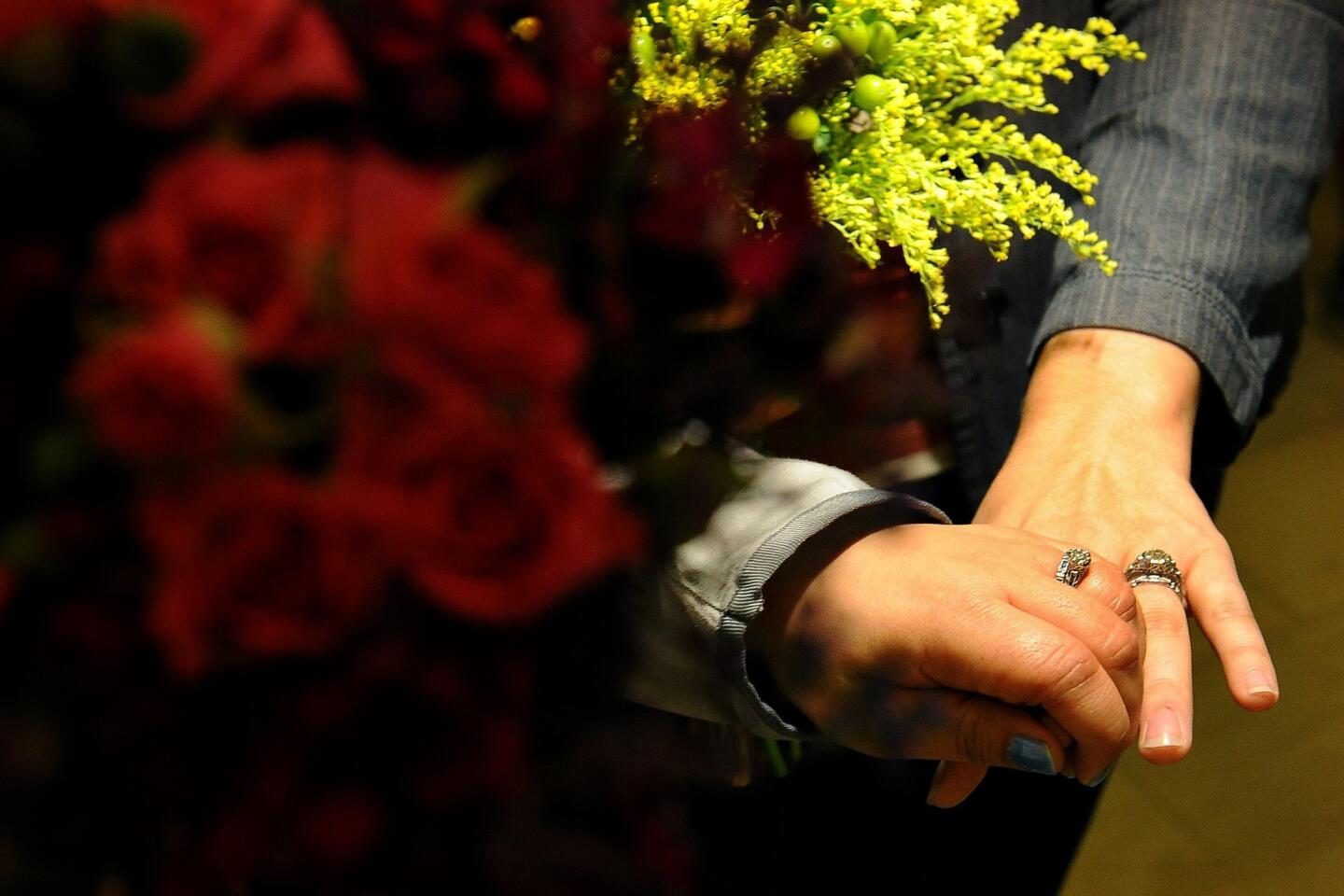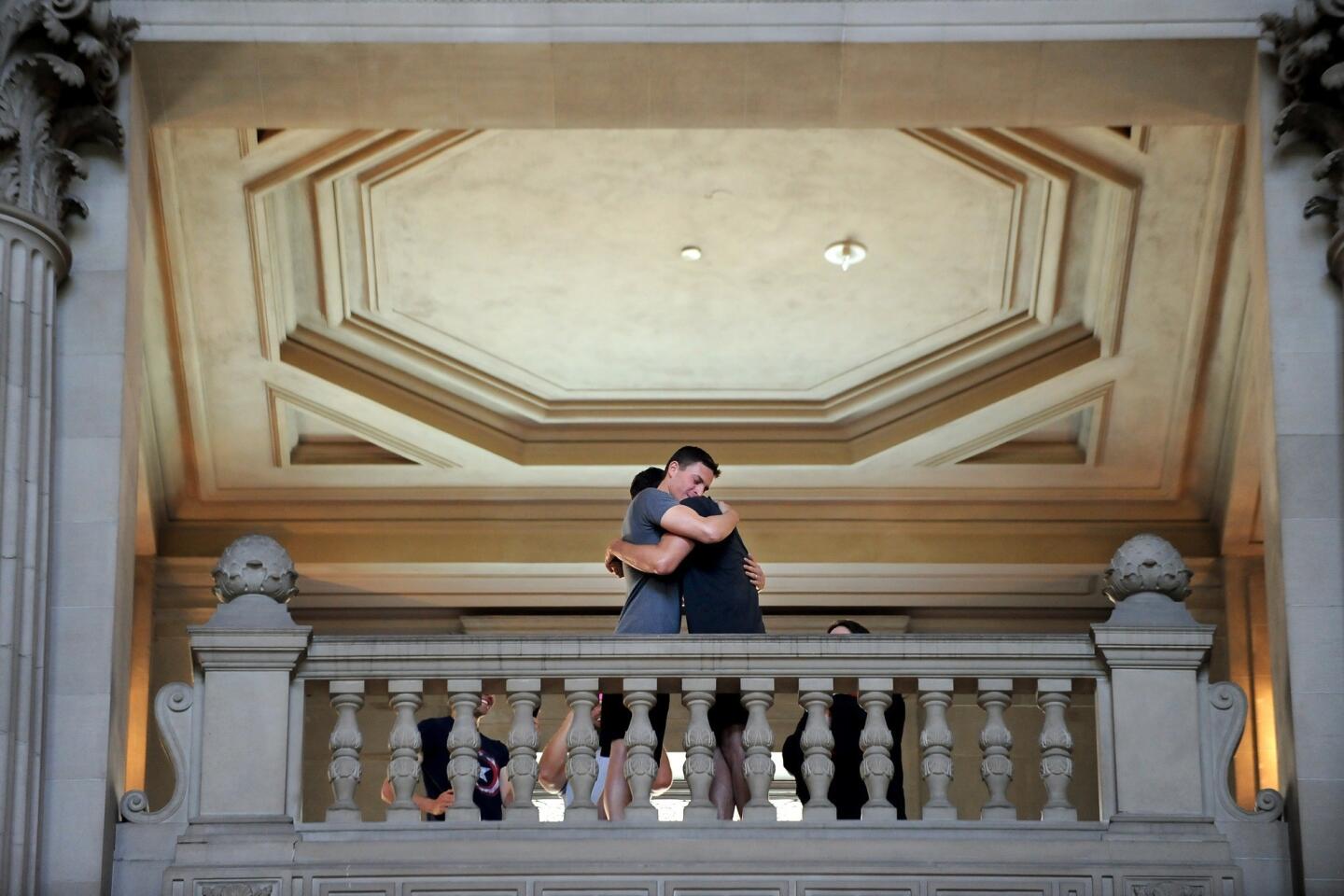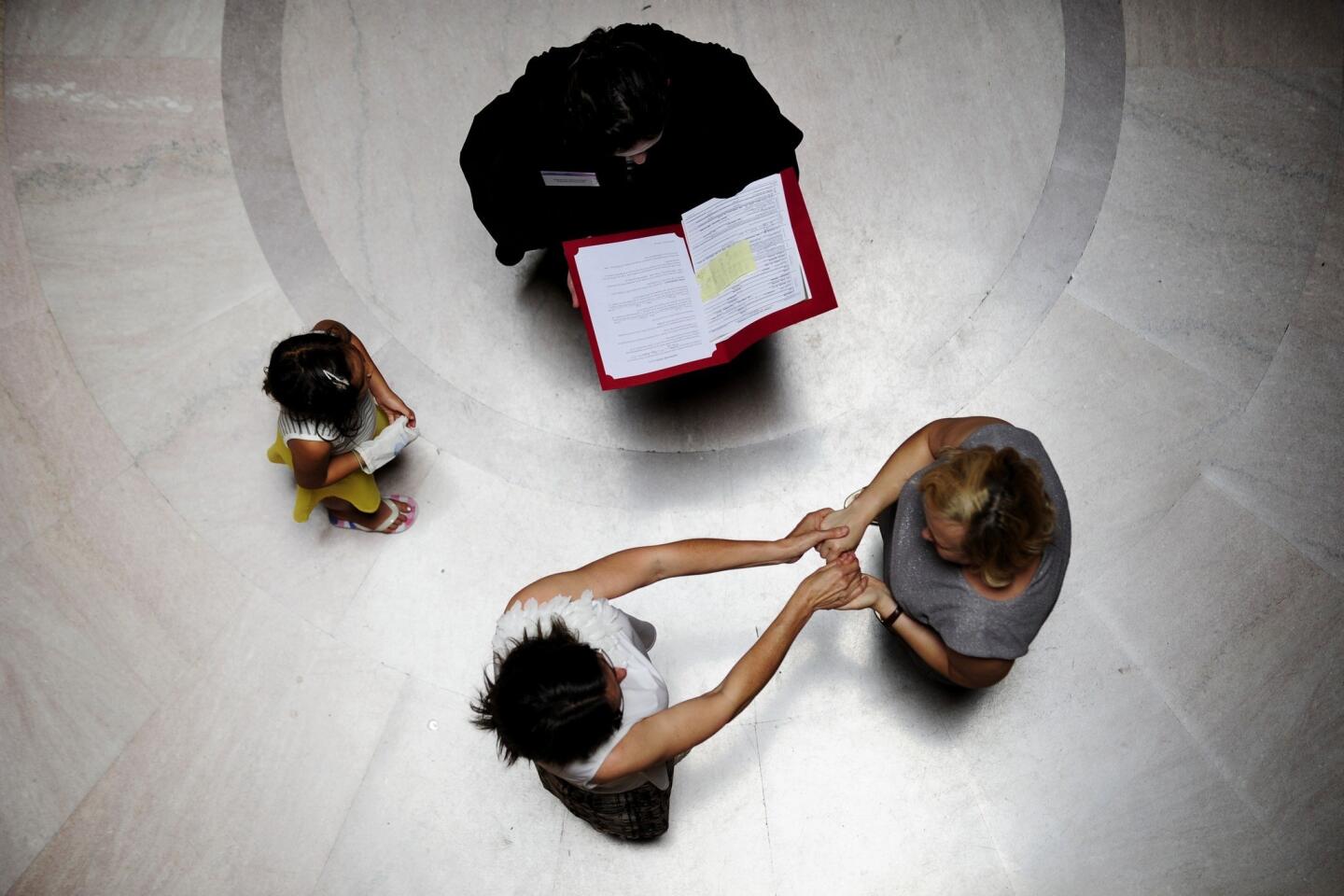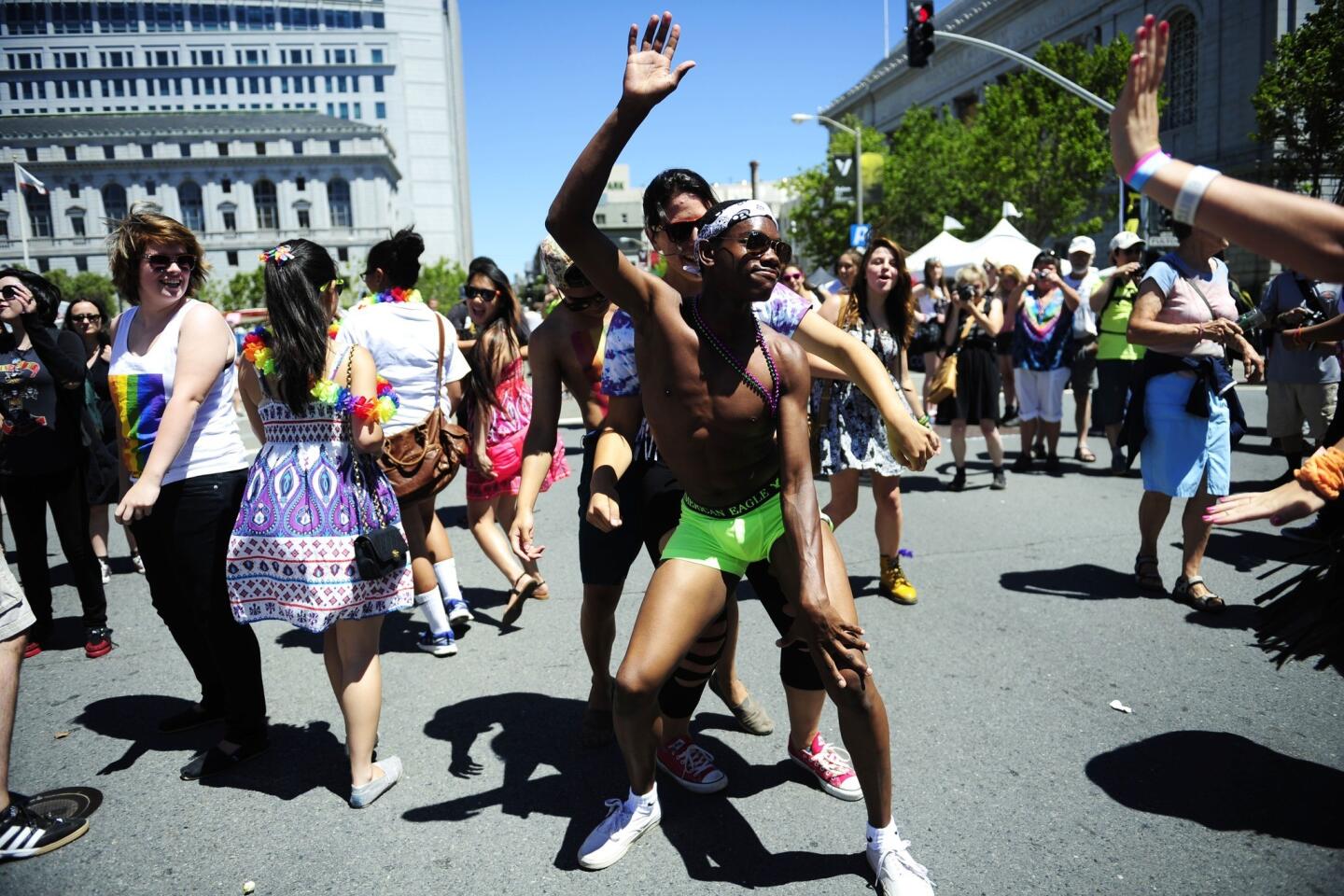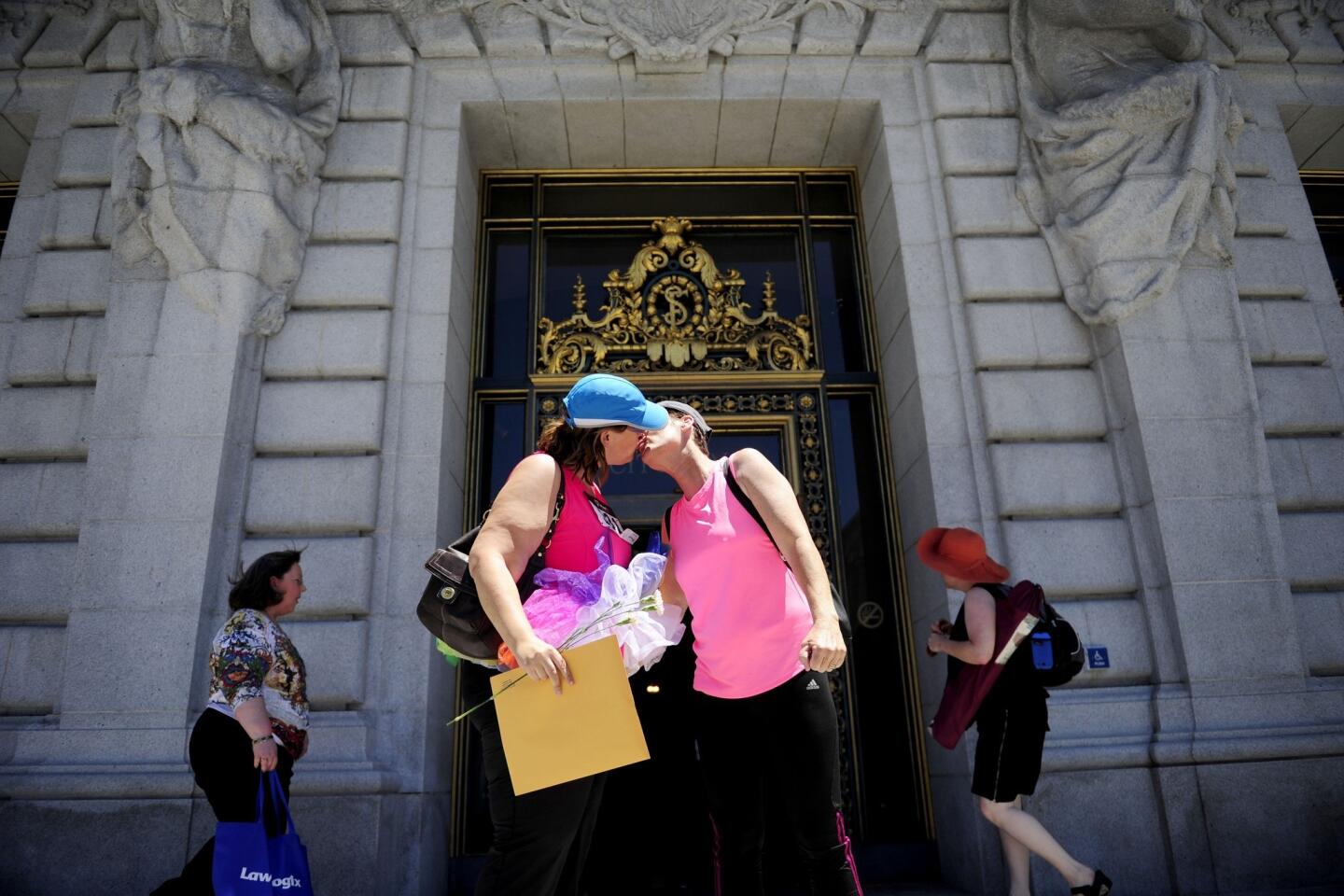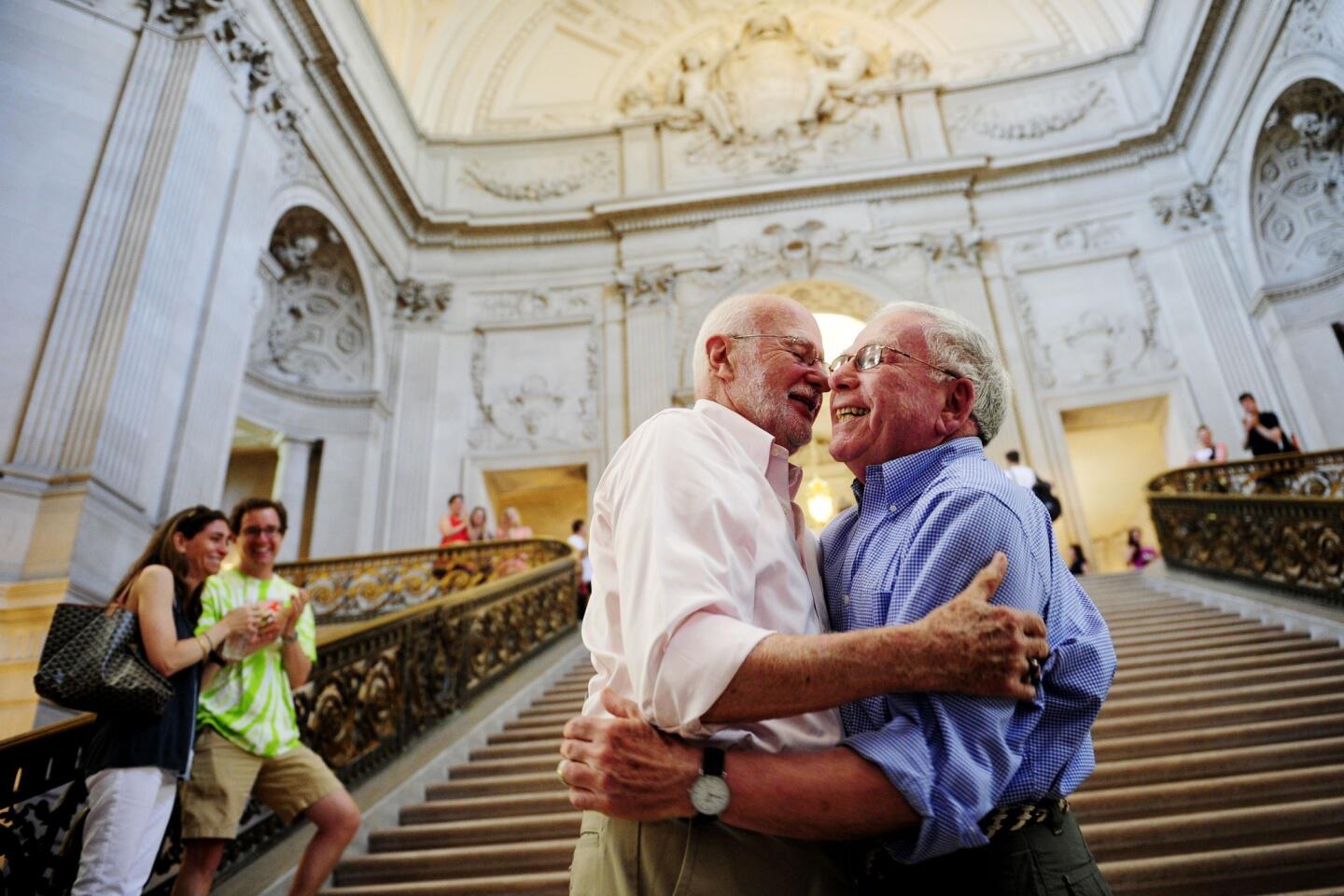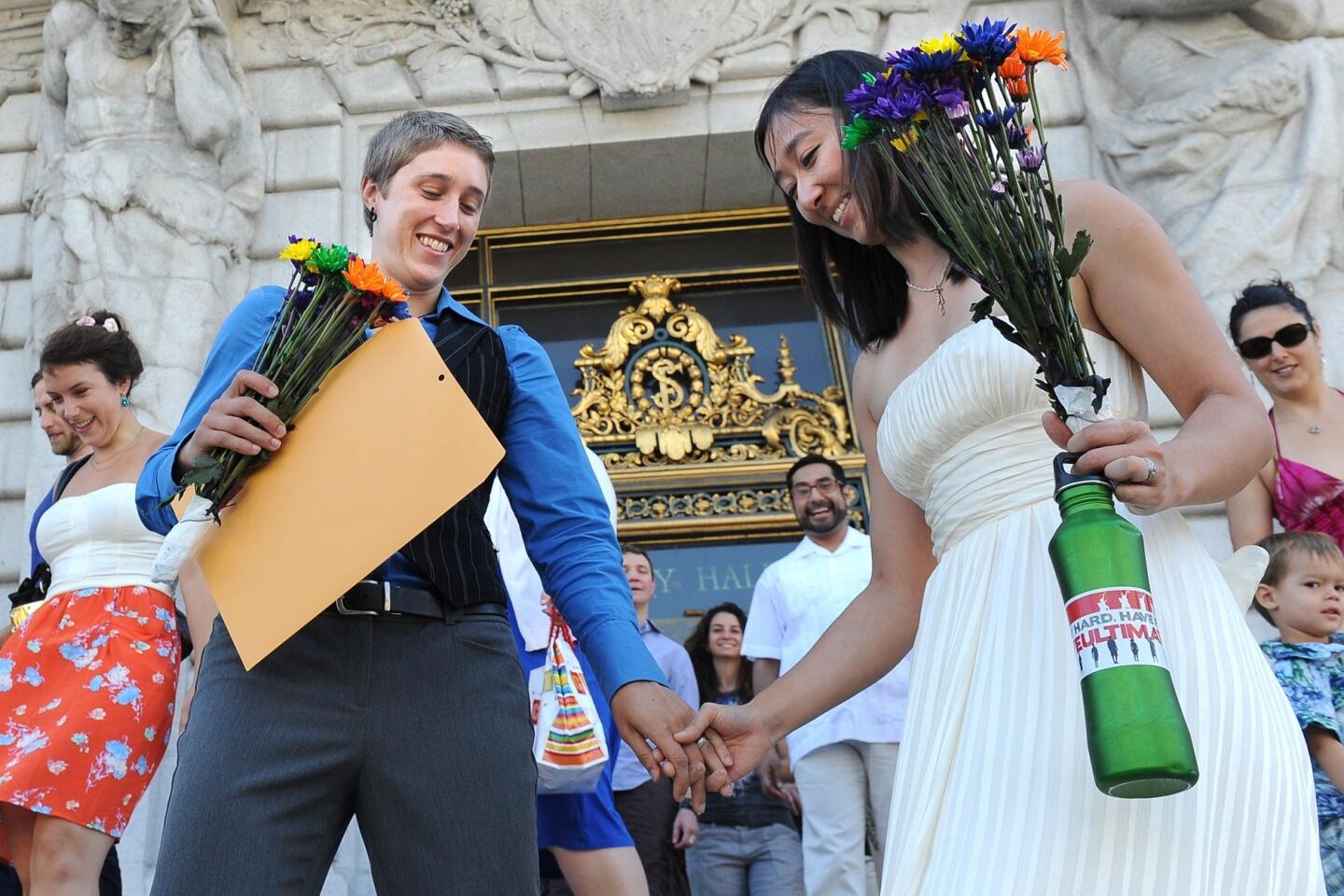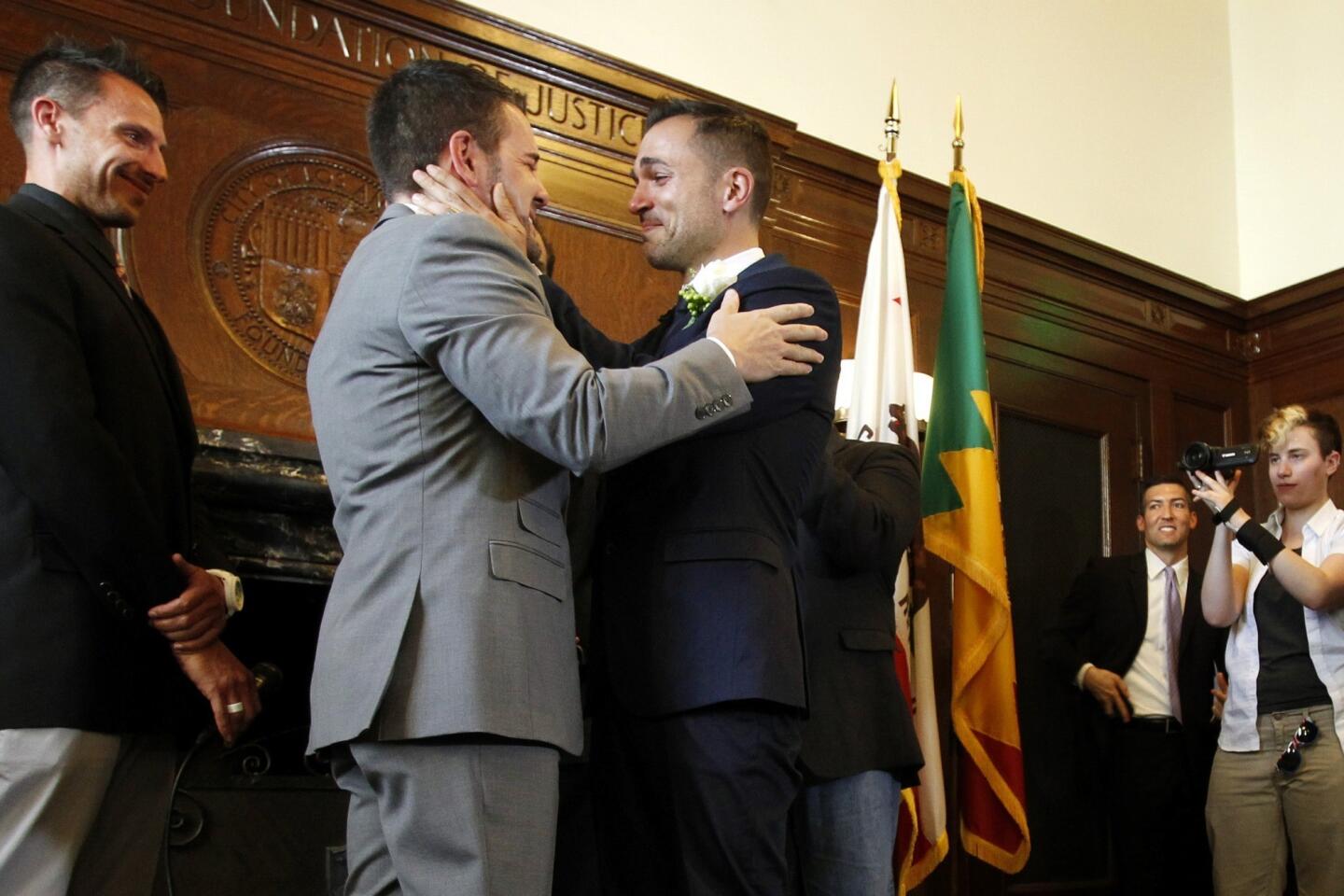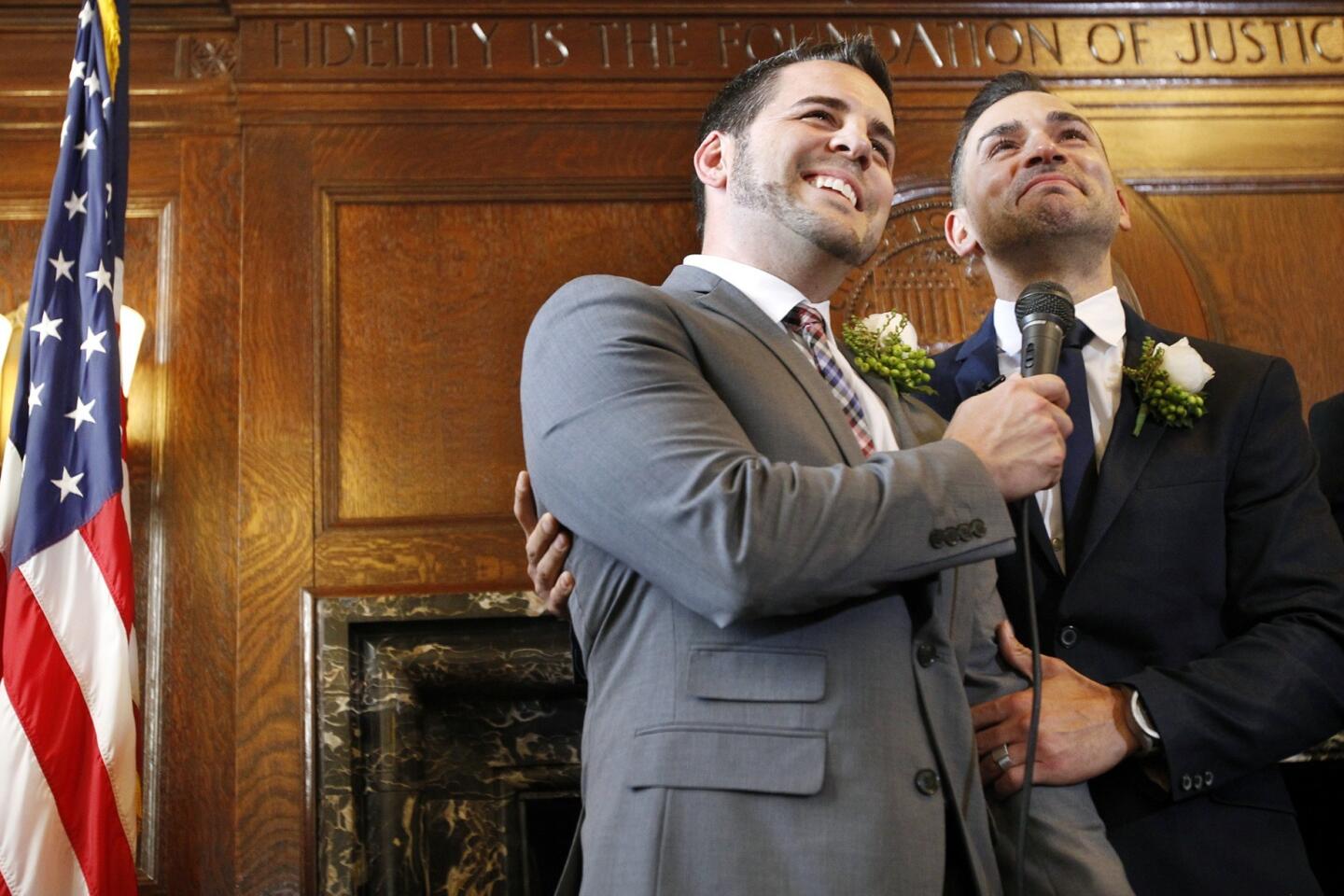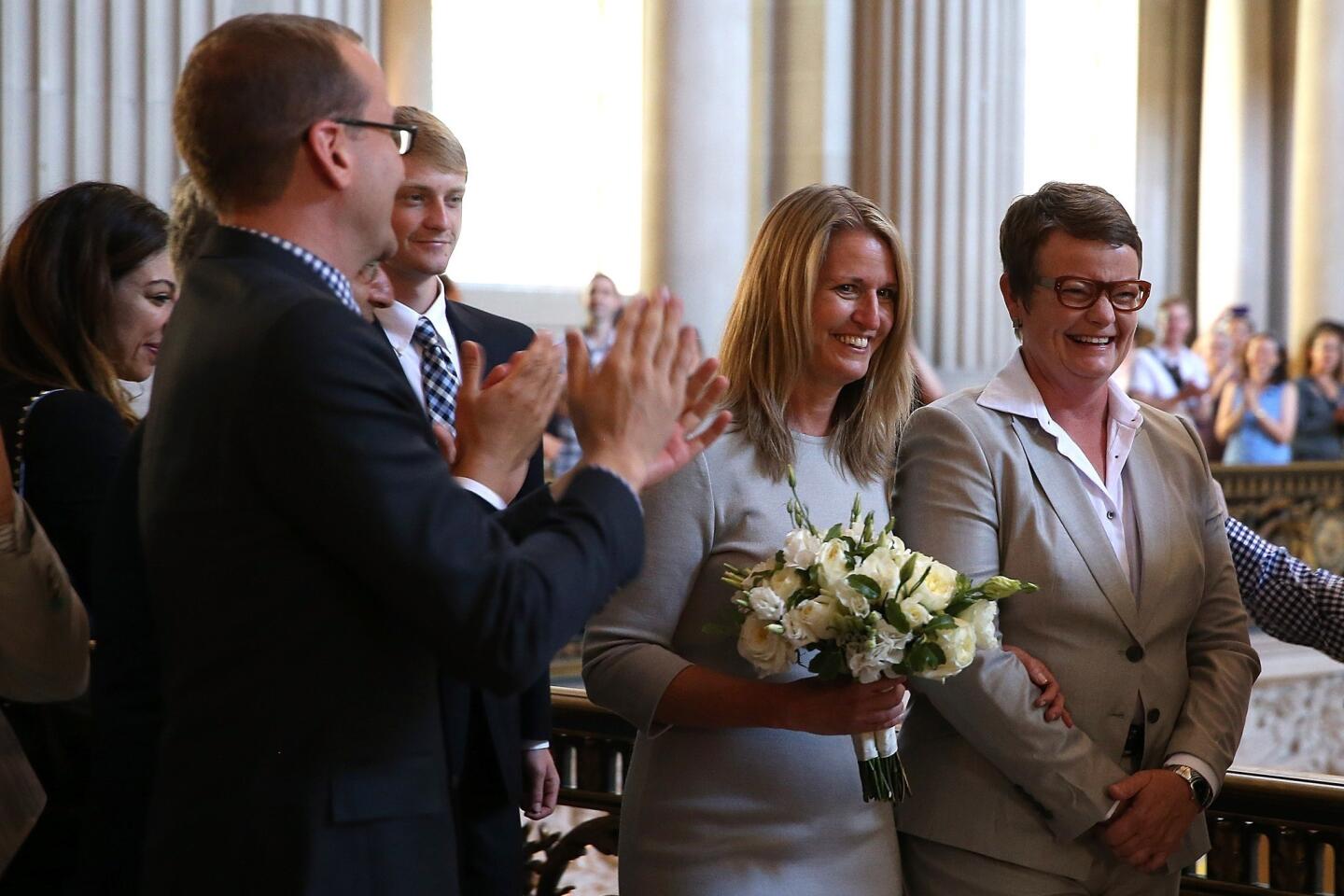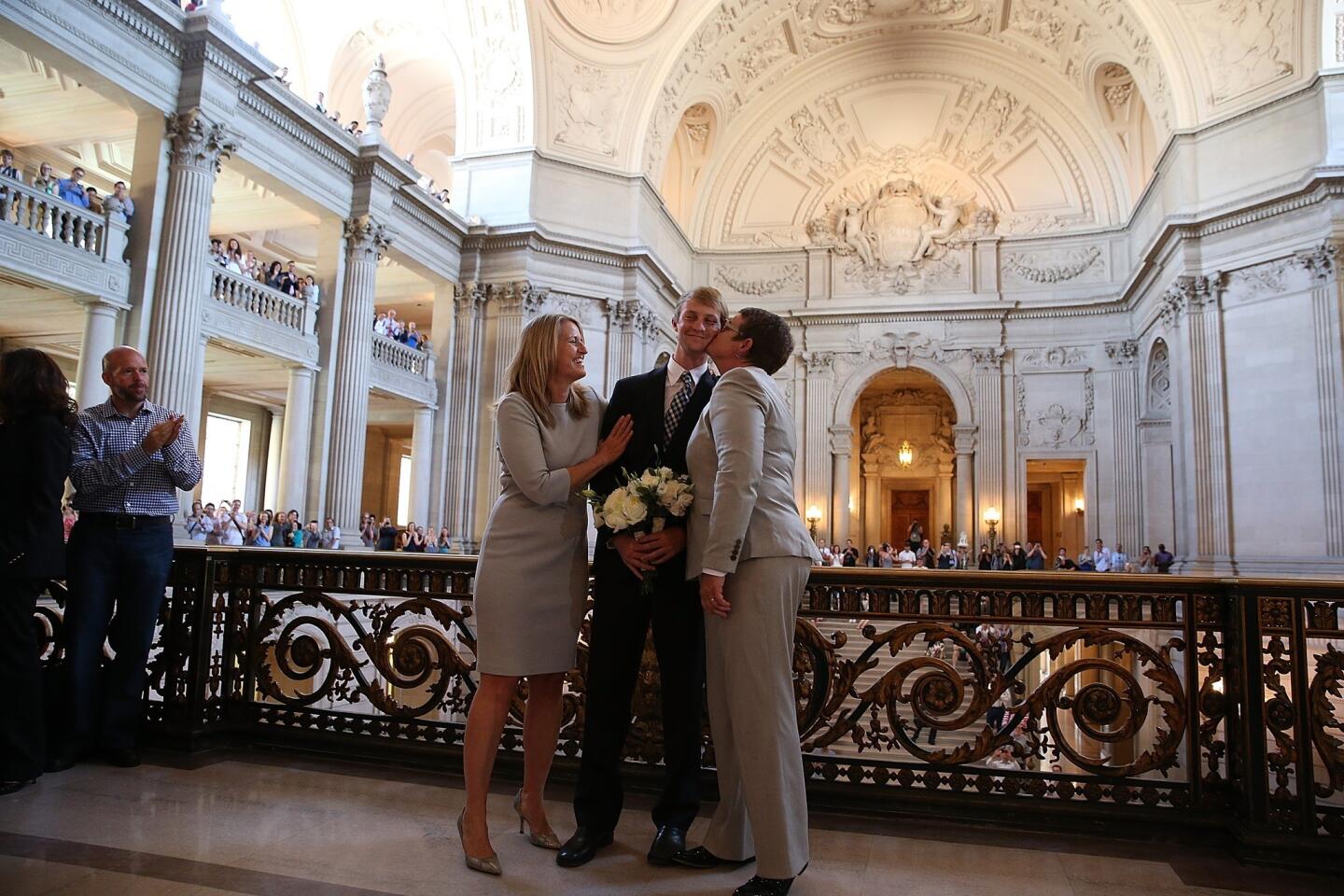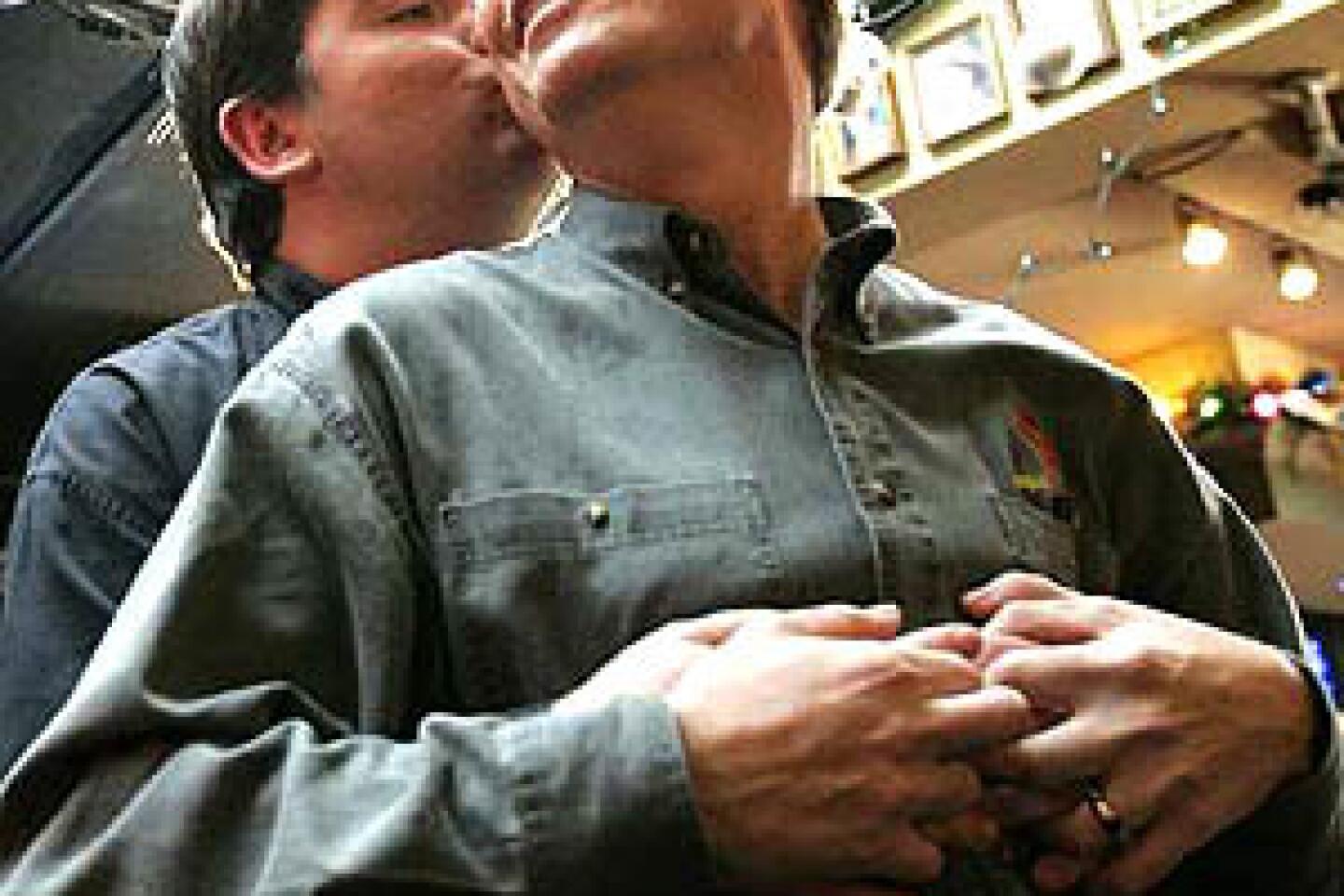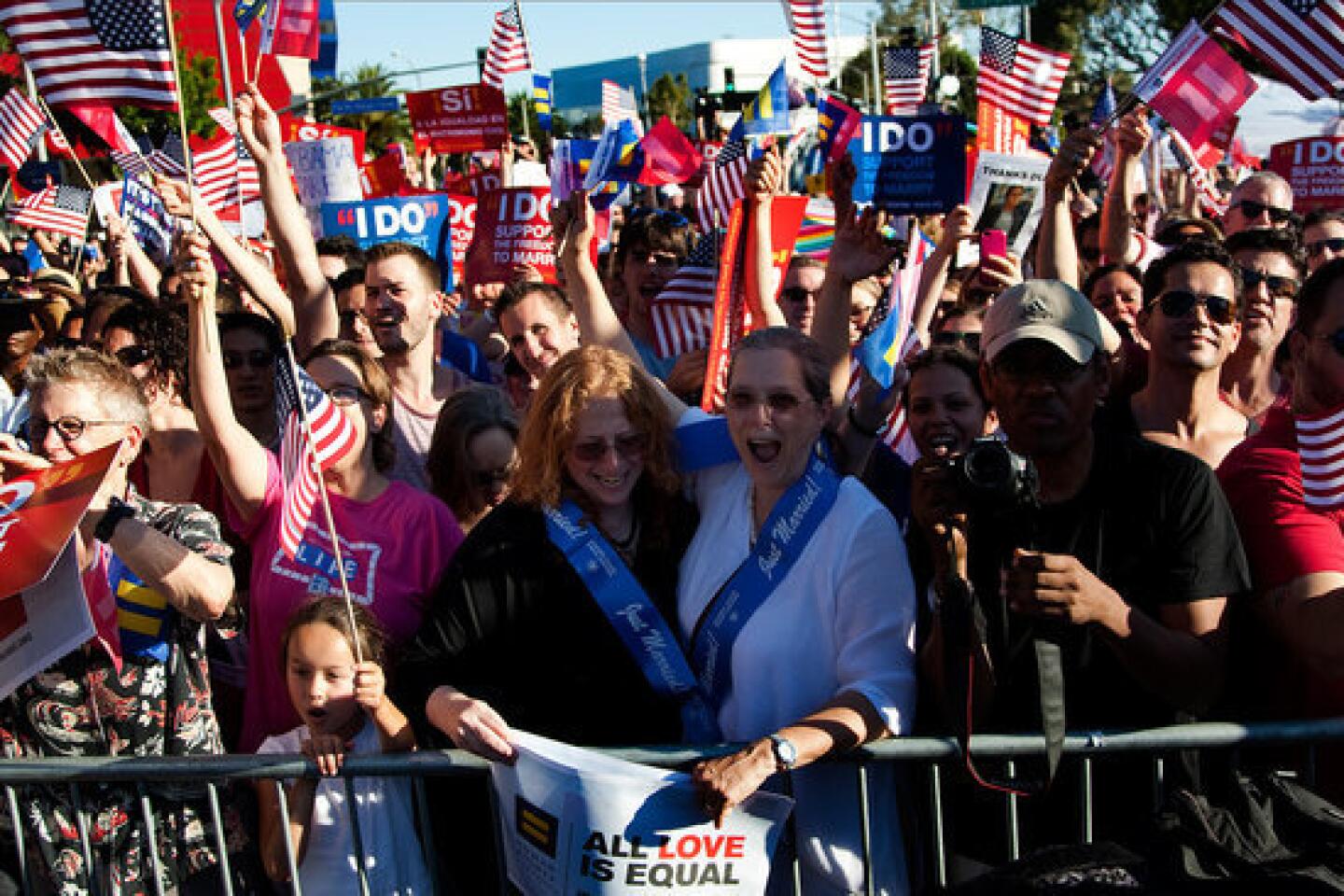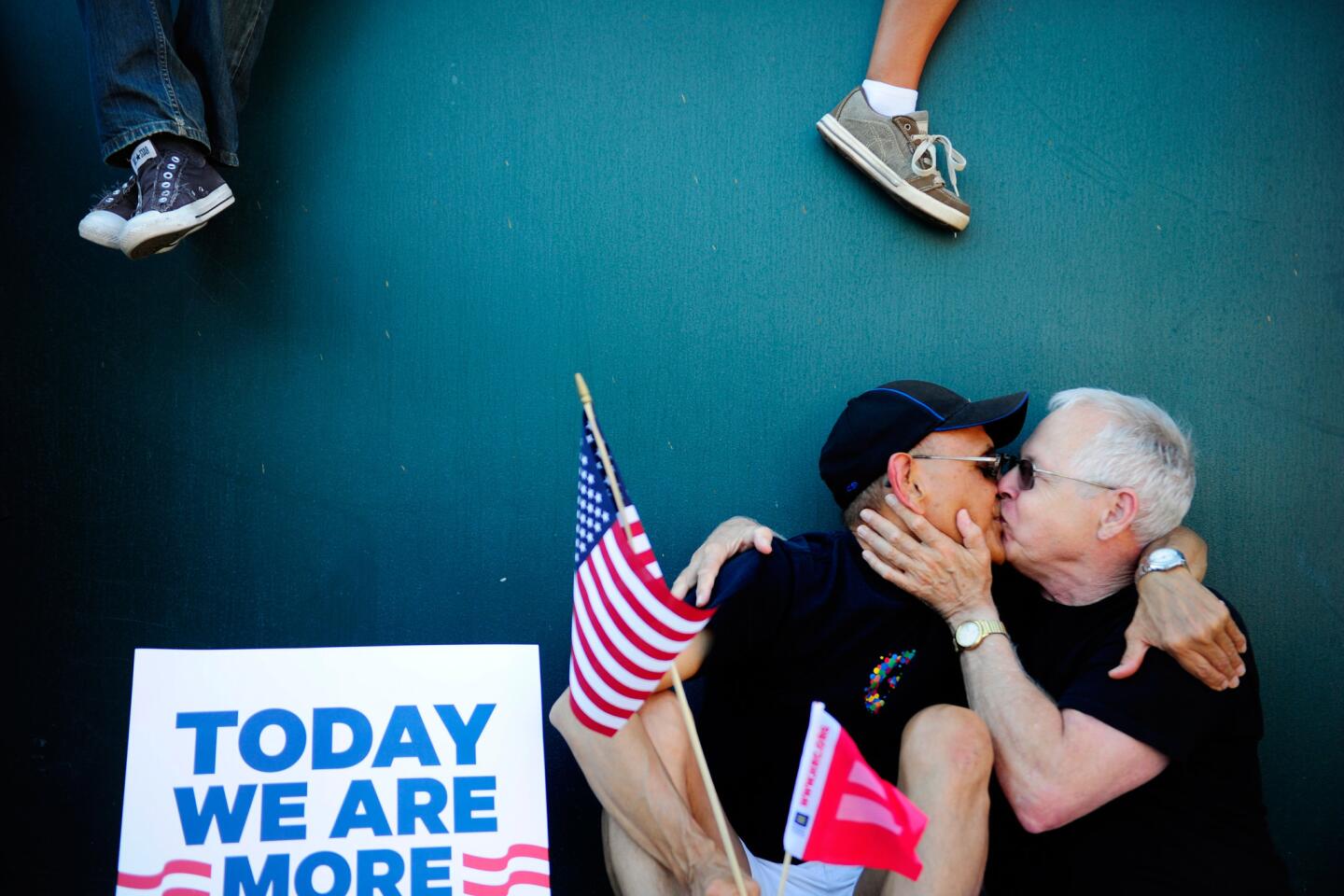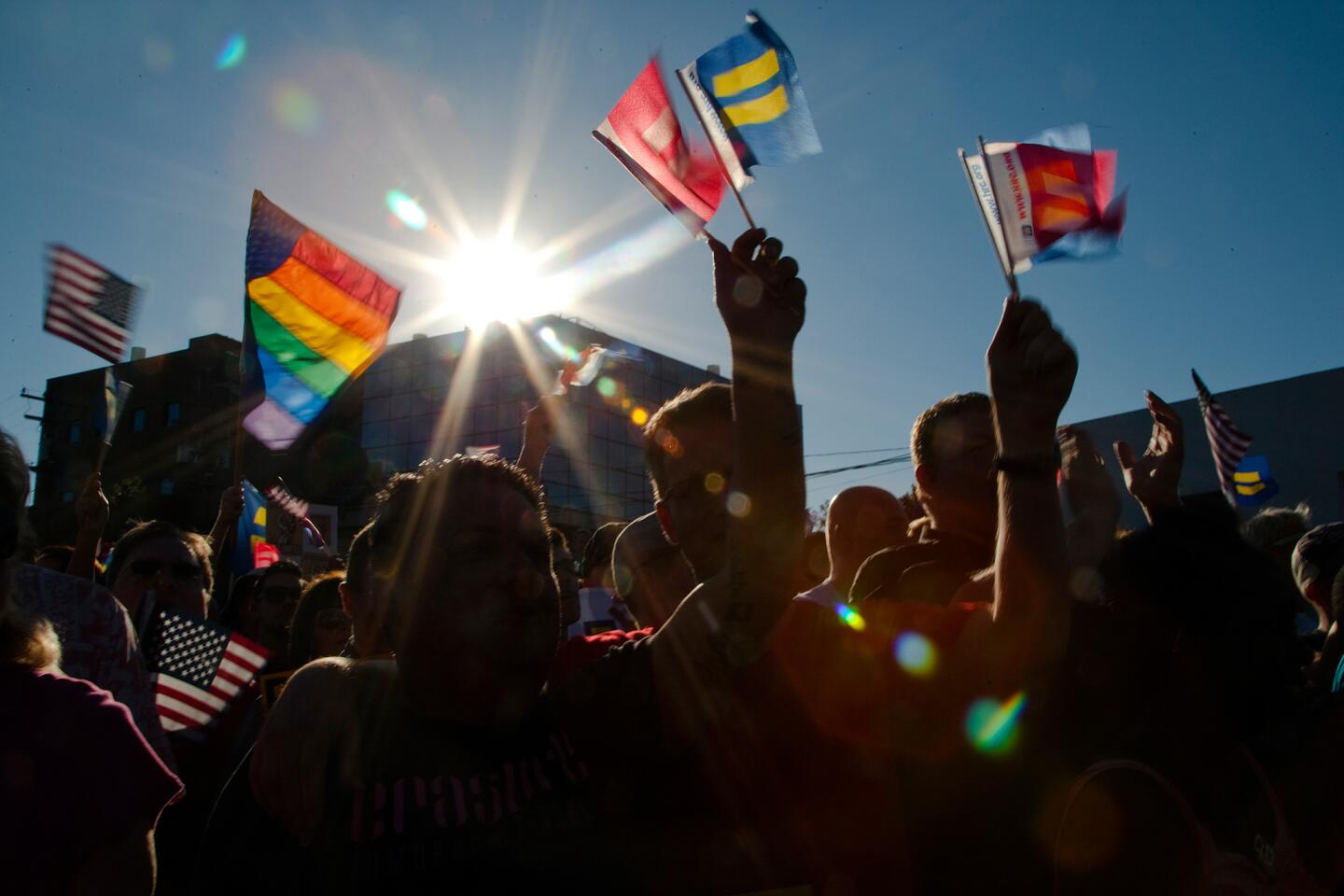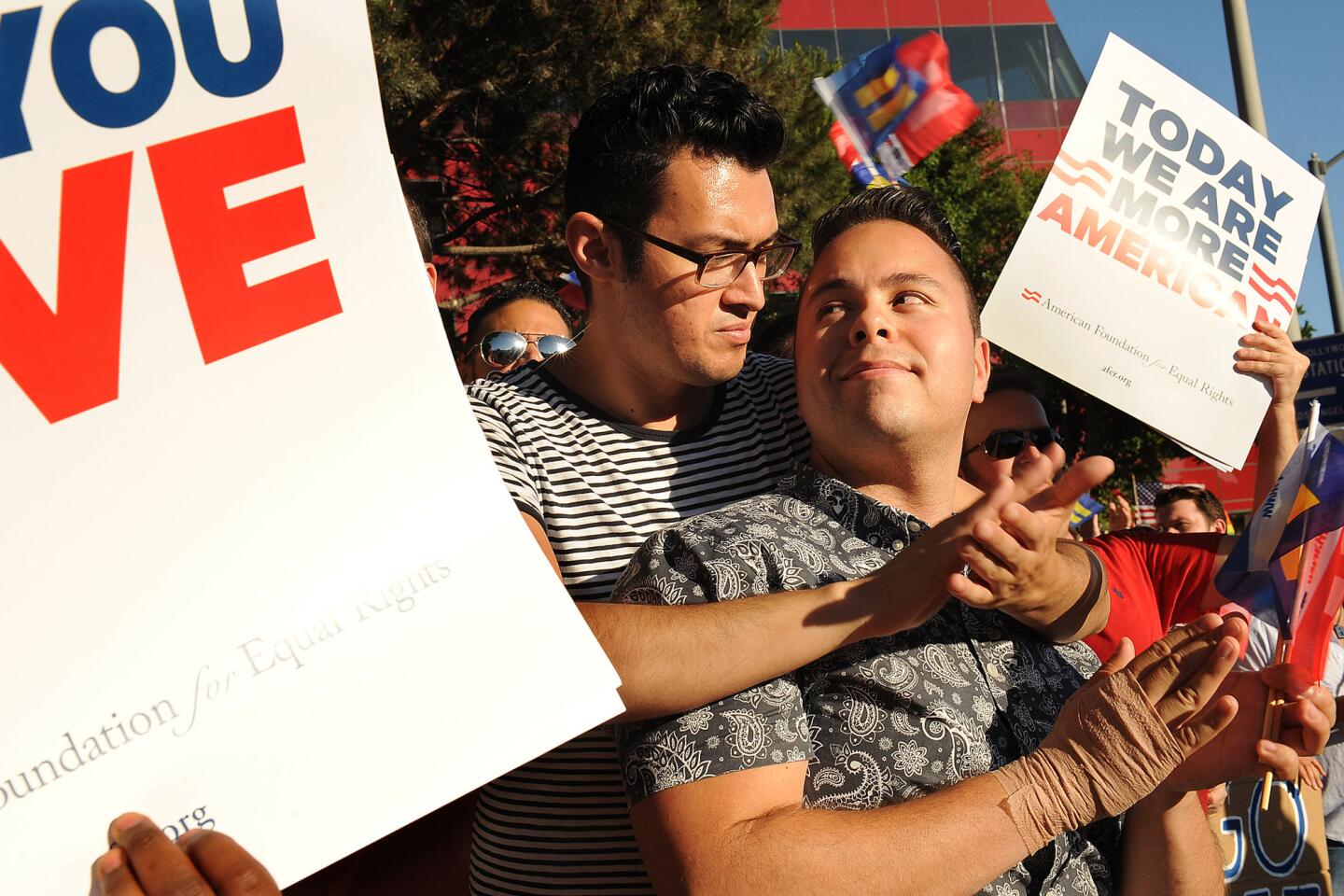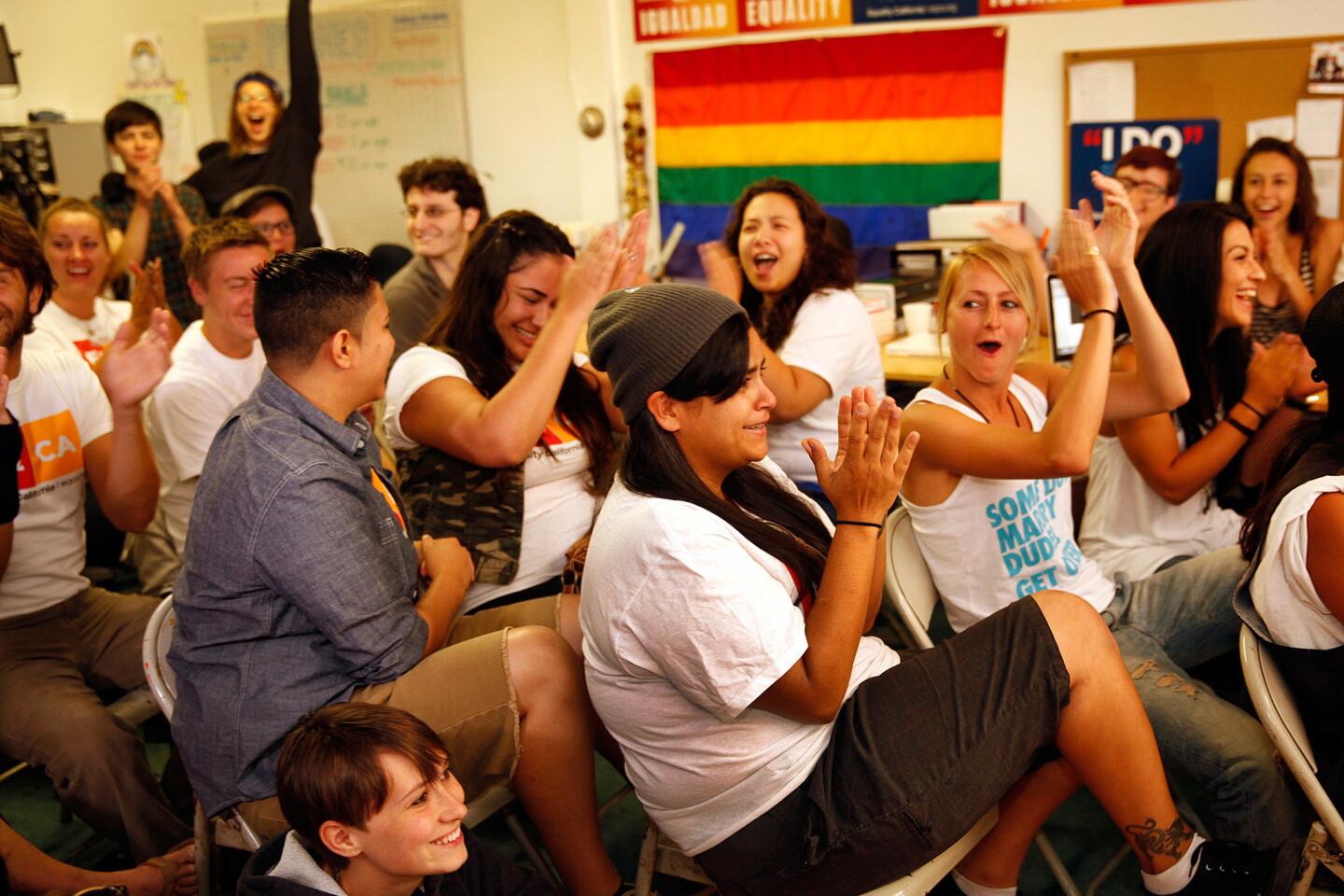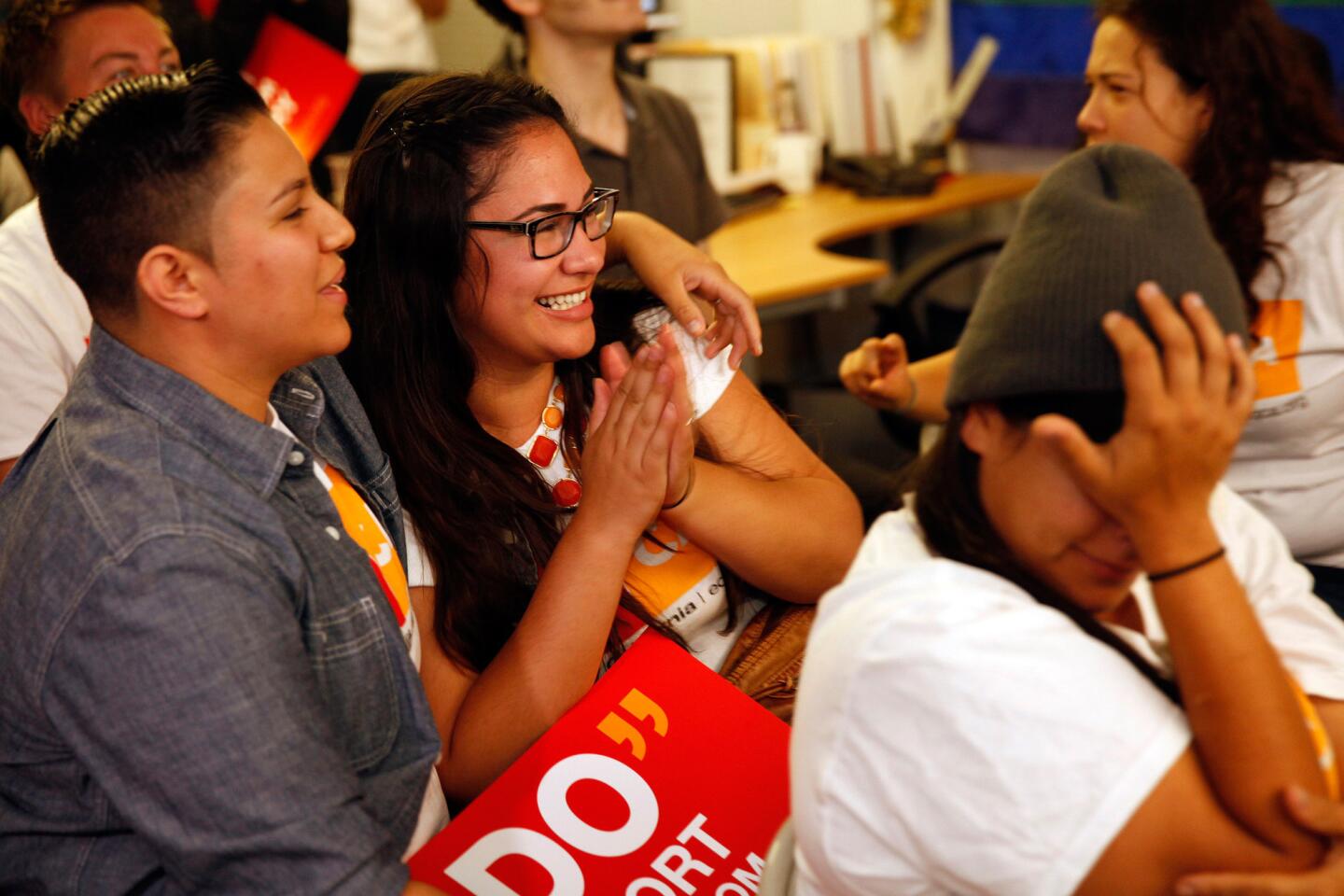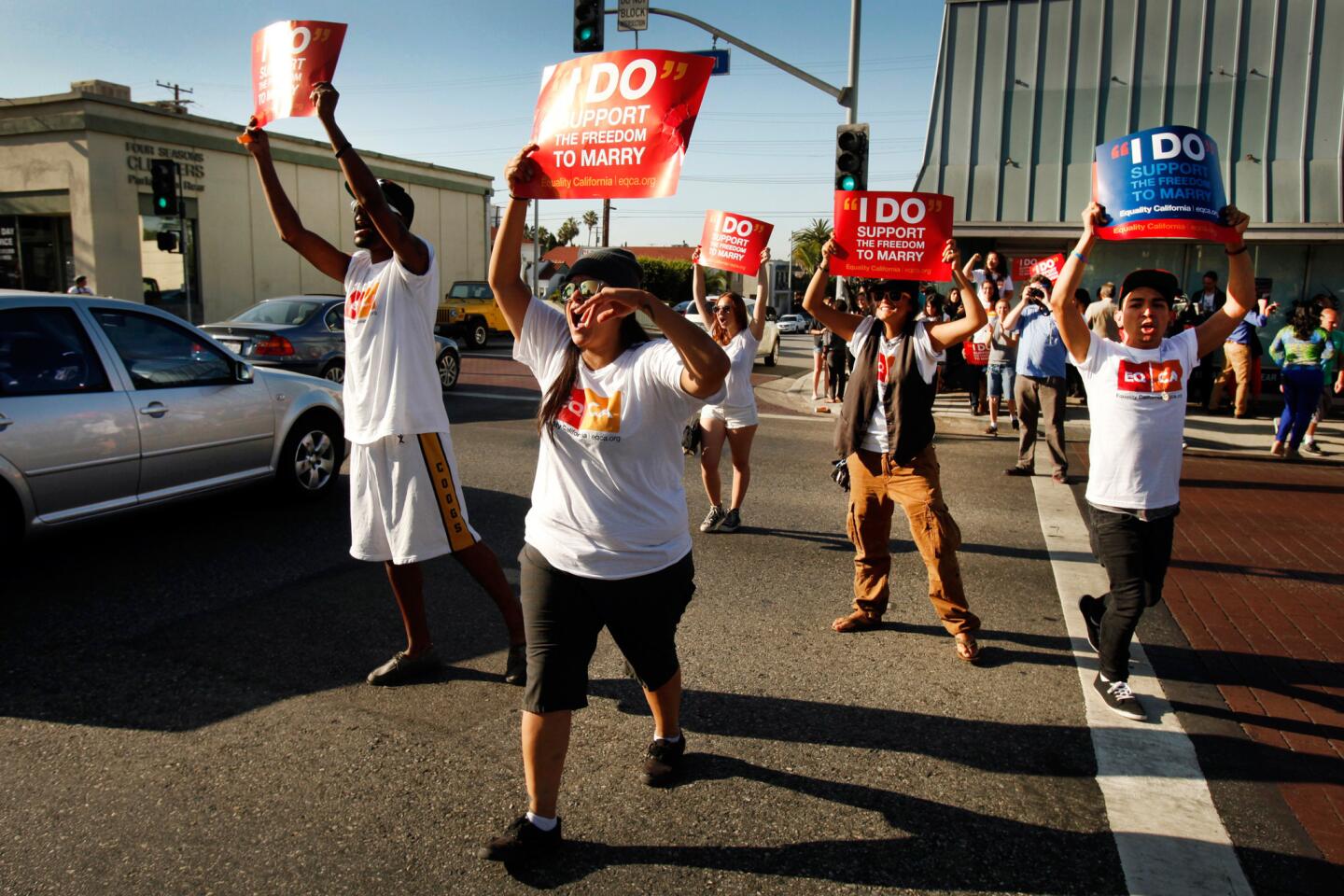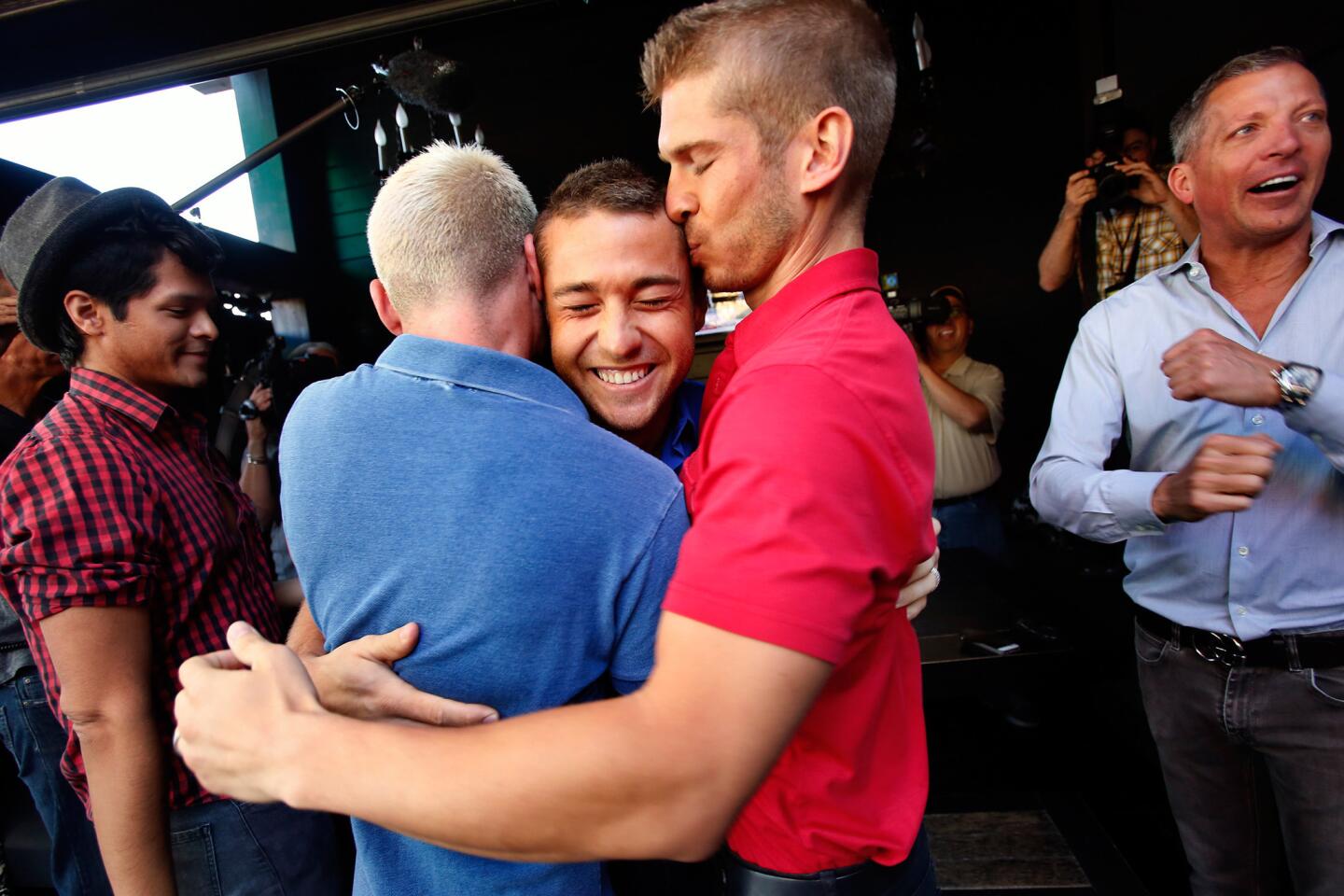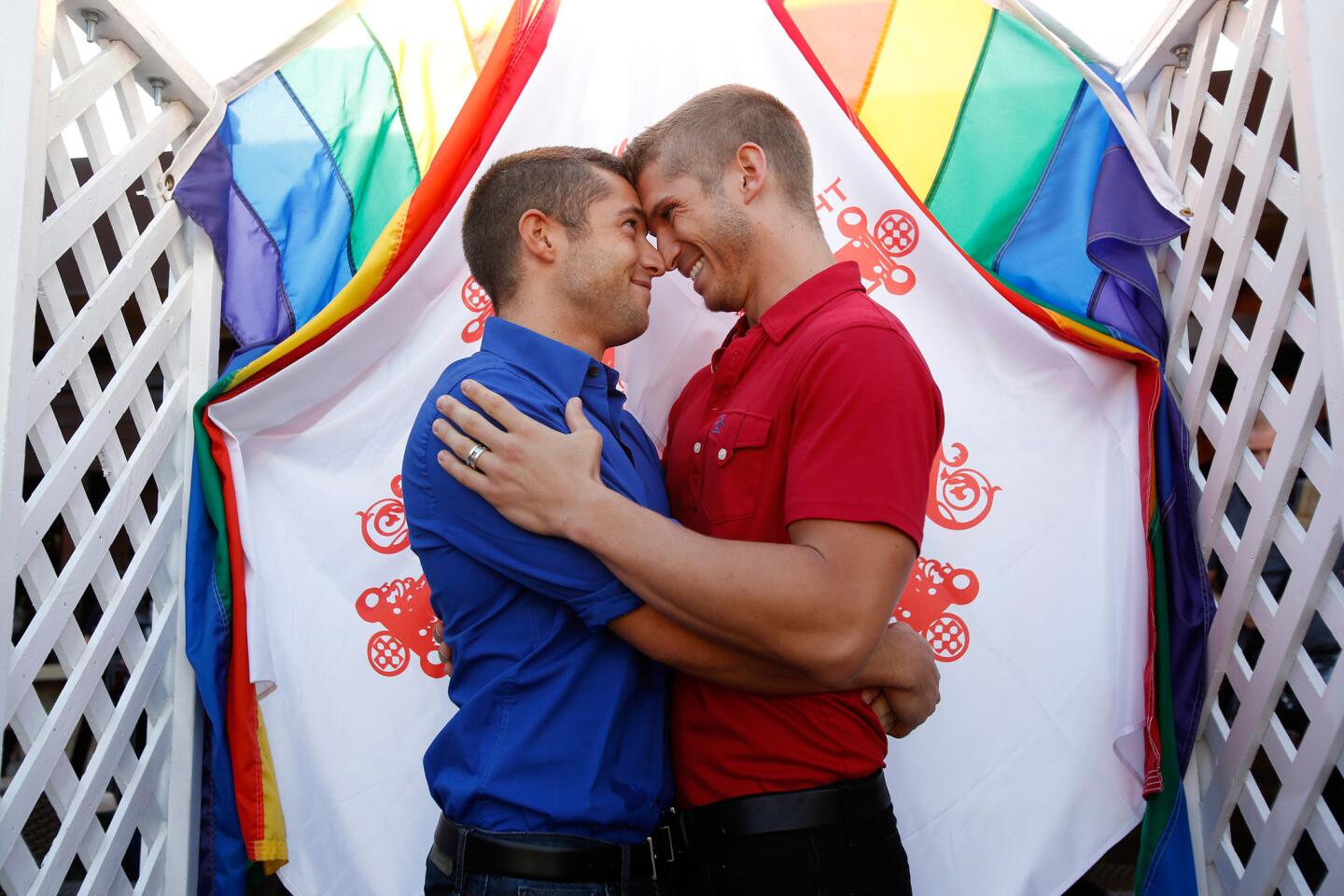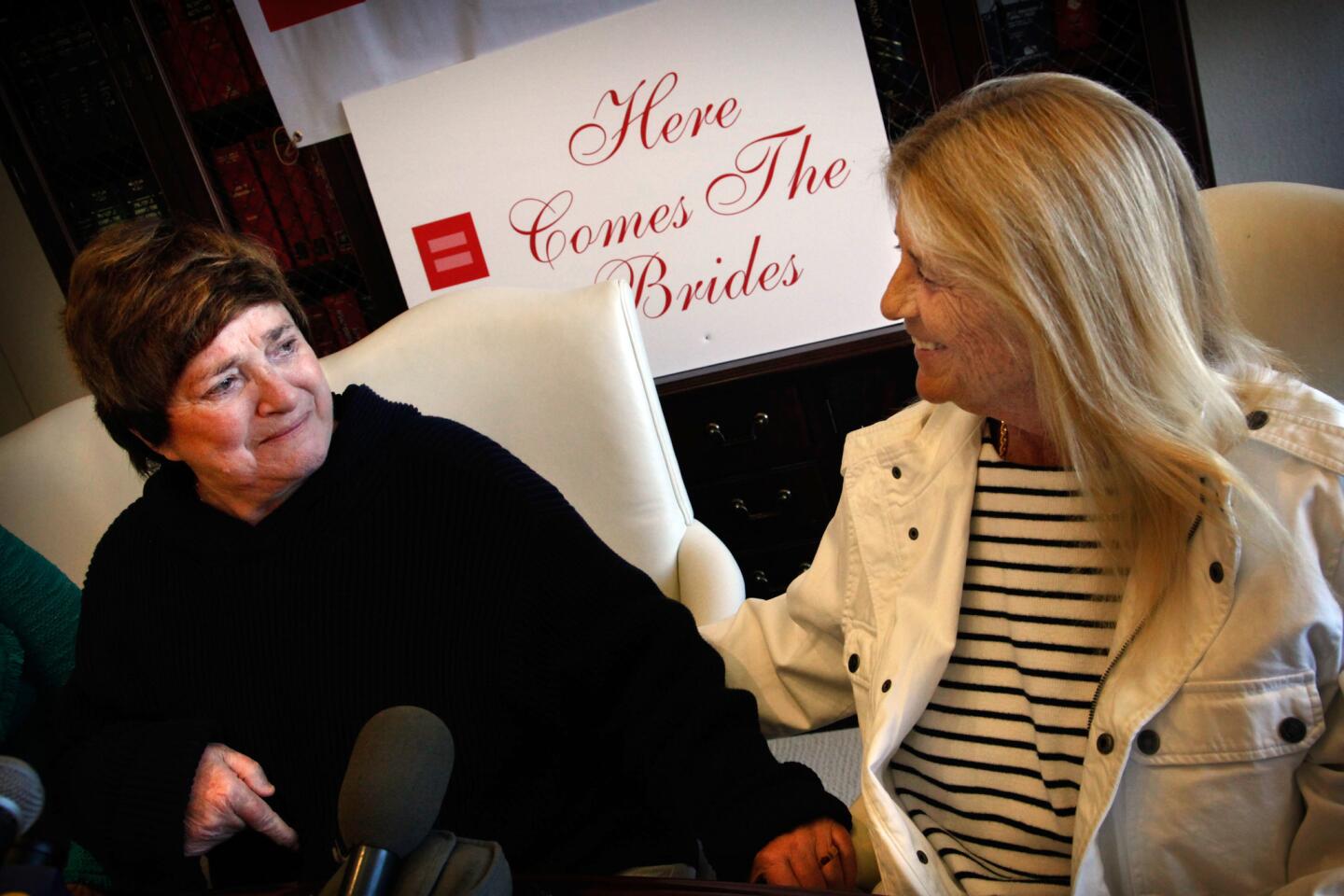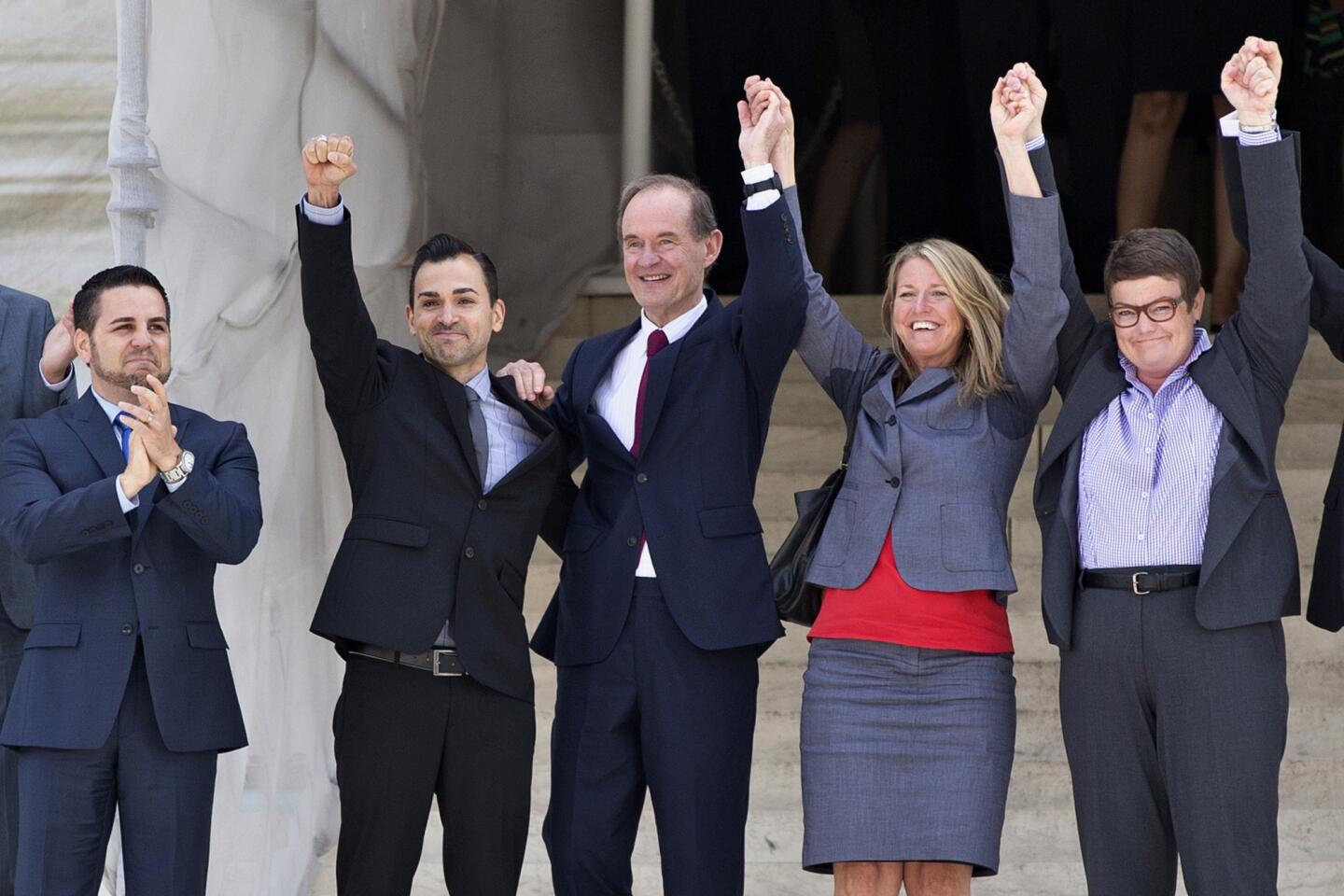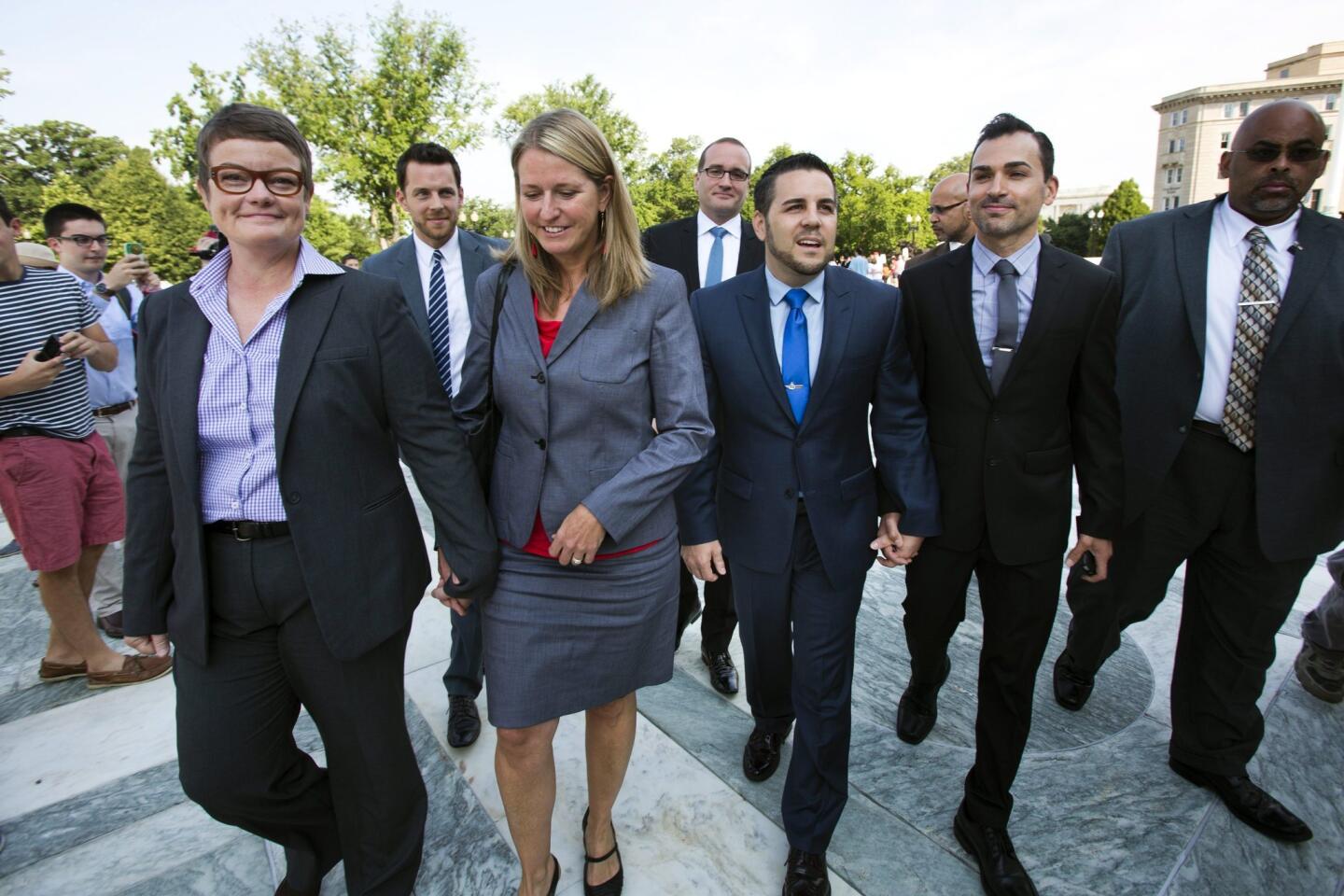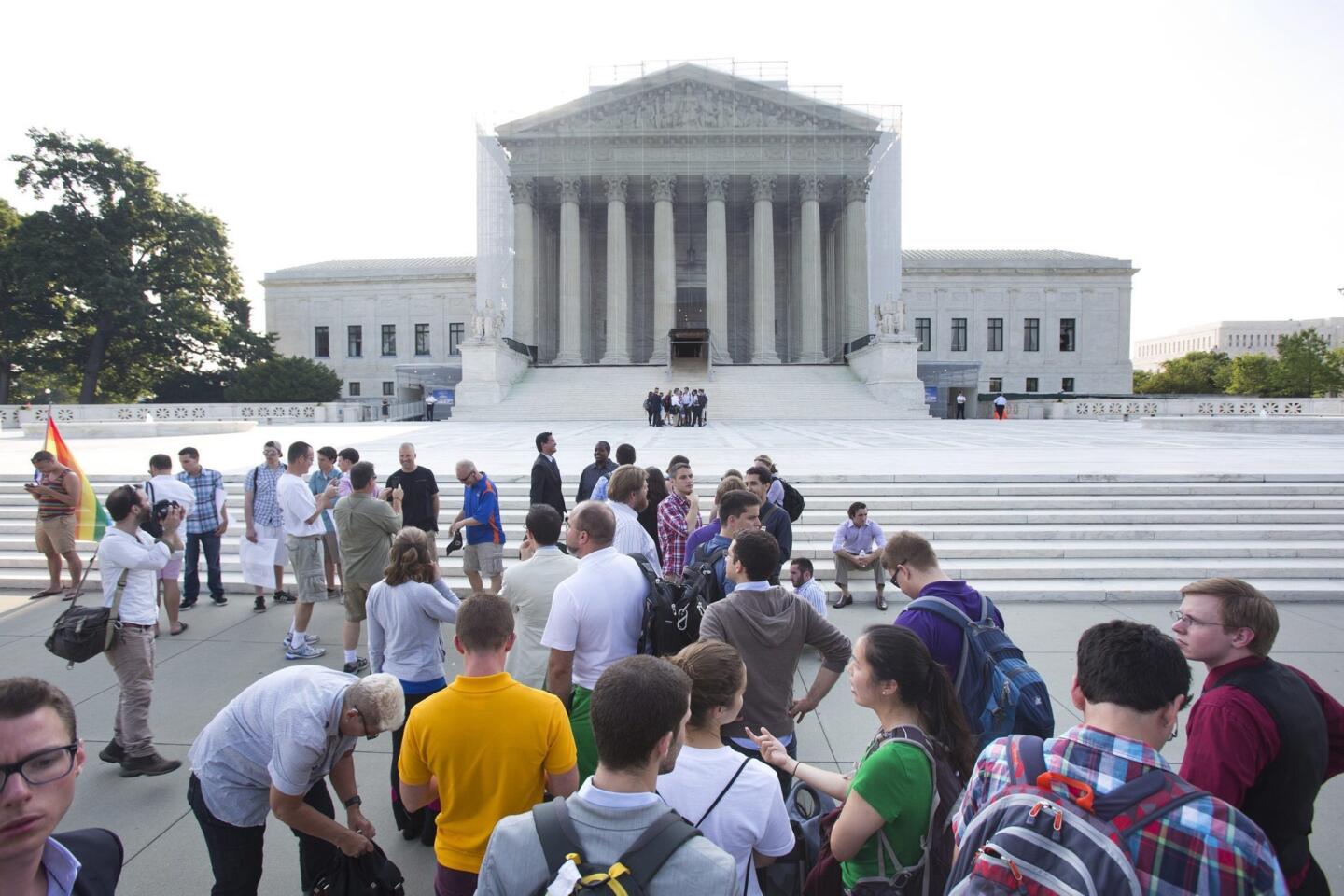DOMA: For lesbian plaintiff, moral victory and a $363,053 tax refund
- Share via
NEW YORK -- It wasn’t just the $363,053 tax bill that drove Edith “Edie” Windsor to take on the federal government four years ago. Windsor, heartbroken after the death of her longtime partner, Thea Spyer, was also angered by the fact that if Thea had been Theo, the estate she left to Windsor would not have been taxed.
“So I decided to sue and get my money back,” Windsor, now 84, said Wednesday shortly after the U.S. Supreme Court struck down the 1996 federal law that had left Windsor with a tax bill that no opposite-sex couple would have faced. In a 5-4 vote, the court ruled the Defense of Marriage Act, defining marriage as between a man and a woman, unconstitutional, clearing the way for same-sex married couples to enjoy the same inheritance laws and other benefits granted opposite-sex couples.
Among other things, that means Windsor will get her money back, and more. “Every penny,” said attorney Roberta Kaplan, who argued the case before the court in March. “Plus interest!”
Kaplan and Windsor spoke at a news conference in New York City’s Greenwich Village -- considered the birthplace of the gay rights movement -- shortly after the decision came down.
Documents: Decisions on DOMA, Prop. 8
Windsor, barely 5 feet tall, with a sweep of white hair and wearing a black pantsuit and string of pearls, was greeted like a rock star as she entered the LGBT Community Center. Supporters cheered and applauded as someone barked at journalists to clear a path for her.
She was joined by Kaplan and two other lawyers involved in the case: James Esseks, director of the American Civil Liberties Union’s Lesbian, Gay, Bisexual Transgender Project, and Donna Lieberman, executive director of the New York Civil Liberties Union.
But it was Windsor everyone came to hear. She did not hold back as she described her years of living as a closeted lesbian, working for IBM at a time when gay people stayed in the closet. “I lied all that time,” said Windsor, who moved to New York City in the 1960s after ending a sham marriage to a man. She and Spyer met in 1963. They married in Canada in 2007, and while the marriage was recognized by New York state, federal laws trumped the state’s when it came to the women’s rights as a married couple.
That meant that when Spyer died in 2009 at the age of 77, Windsor was taxed on the estate she inherited, to the tune of more than $363,000.
When she got word of the Court’s 5-4 ruling Wednesday, Windsor said she cried with joy. “If I had to survive Thea, what a glorious way to do it,” said Windsor, who never let herself become too certain of victory. “I prepared two speeches. One was a total win,” she said. “One was total loss.”
Full coverage: Prop. 8 and DOMA
“I thought our arguments were sound and everyone else’s were insane,” she said jokingly. Then, Windsor added that she was hopeful Justice Anthony Kennedy would swing the decision on her side because of his past roles in voting on the side of gay rights.
Indeed, Kennedy wrote the majority opinion Wednesday in United States vs. Windsor, saying in part that DOMA “seeks to injure the very class New York seeks to protect. By doing so, it violates basic due process and equal protection principles.”
“Wow,” said Kaplan, declaring DOMA “dead and gone, and not a moment too soon.”
“DOMA was the last law on the books that mandated discrimination against gay people by the federal government simply because they are gay,” she said. “The days of ‘skim milk’ or second-class marriages for gay people are now over. “
Lieberman agreed. “We dumped DOMA,” she said. “DOMA is now certifiably a failed marriage law.”
Windsor, who still lives in the New York apartment she and Spyer shared, said she hoped the ruling would have ramifications for gay people of all generations, not just older married couples denied the federal benefits of opposite-sex pairs. “I think it’s the end of teenagers falling in love and not thinking there’s a future for them,” she said.
Amid the victory celebration, there were reminders that marriage remains out of reach for many gay couples living in states that still do not recognize it. But Windsor said she didn’t plan to remain on the front lines of that fight.
“I don’t have a ton of years left,” she said as she left the podium at the news conference. “I’d like to relax a little bit.”
[For the Record, 2:25 p.m. June 26: A previous version of this post said that Edith Windsor’s tax bill was $360,053. It was $363,053.]
ALSO:
GRAPHIC: Gay marriage in the U.S.
PHOTOS: Supreme Court rules on Prop. 8 and DOMA
DOCUMENTS: Supreme Court decisions on DOMA, Prop. 8
Follow Politics Now on Twitter and Facebook
Twitter: @tinasusman
More to Read
Sign up for Essential California
The most important California stories and recommendations in your inbox every morning.
You may occasionally receive promotional content from the Los Angeles Times.
